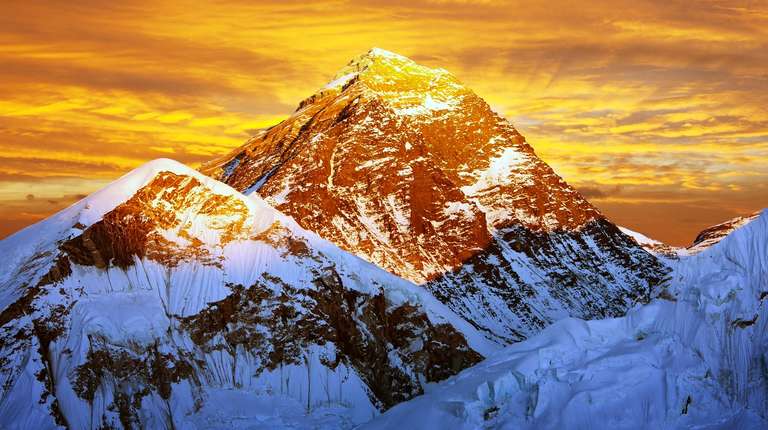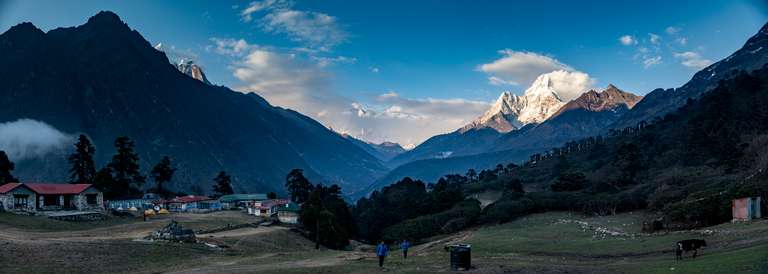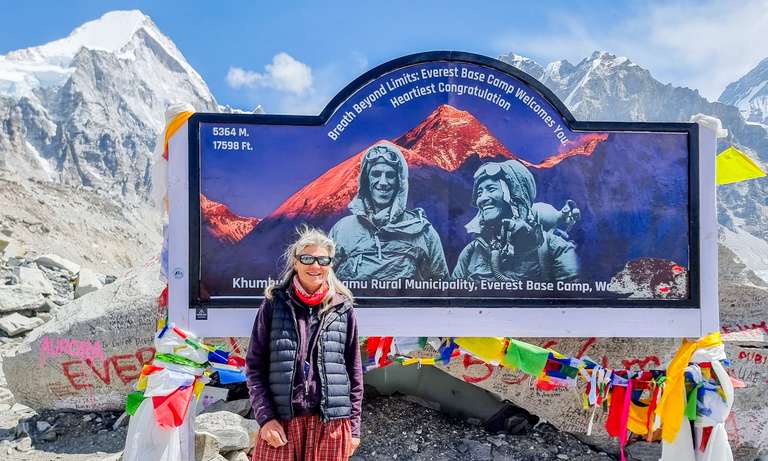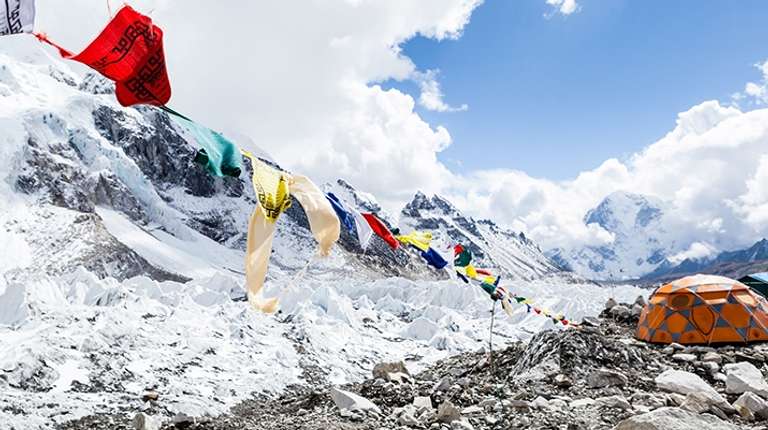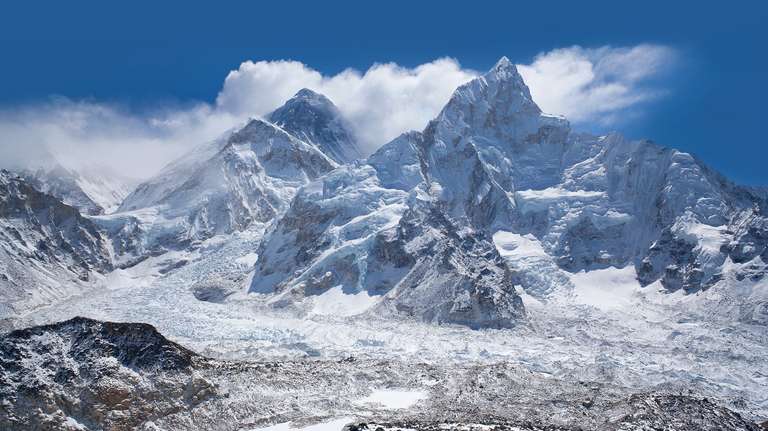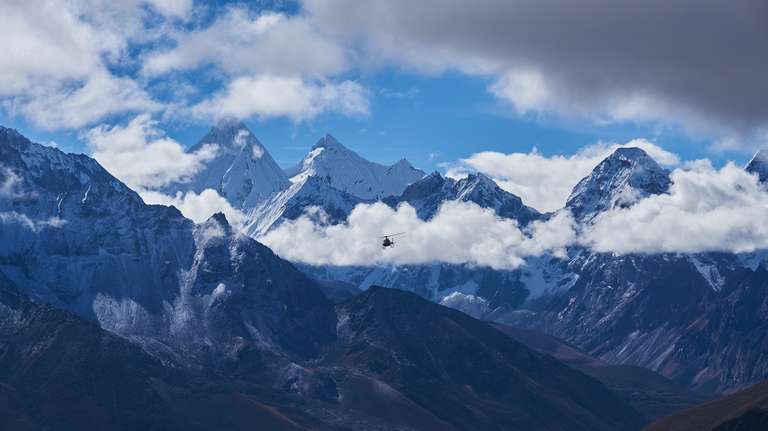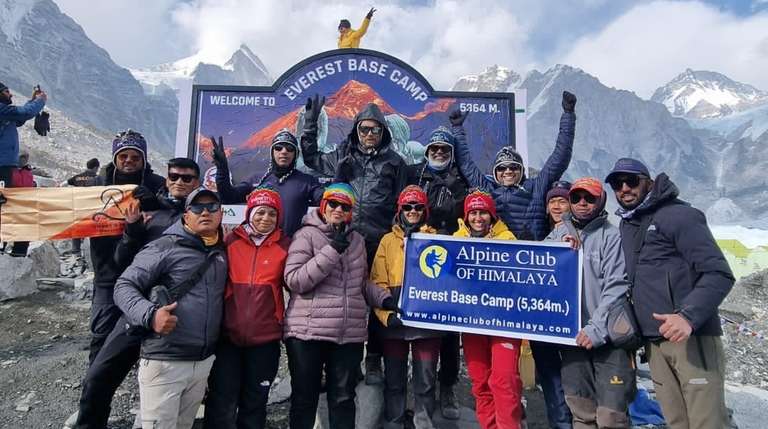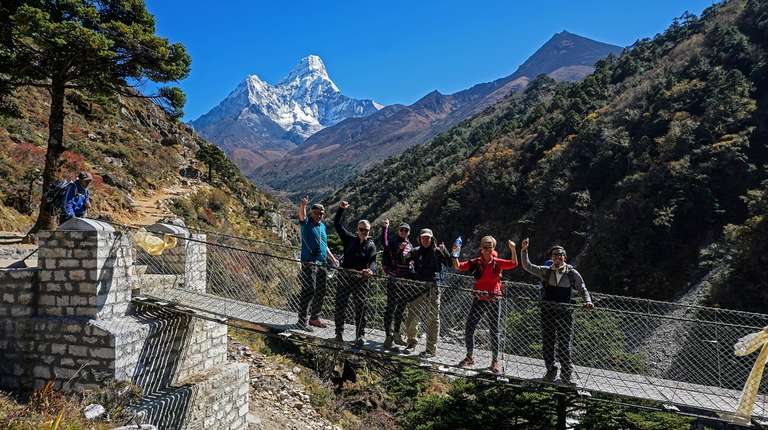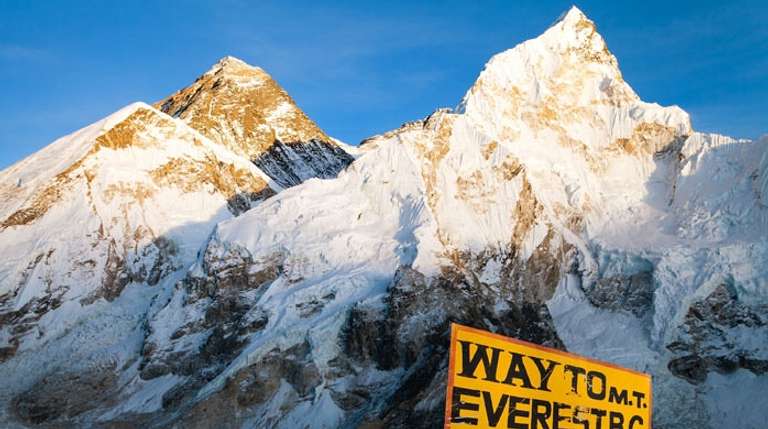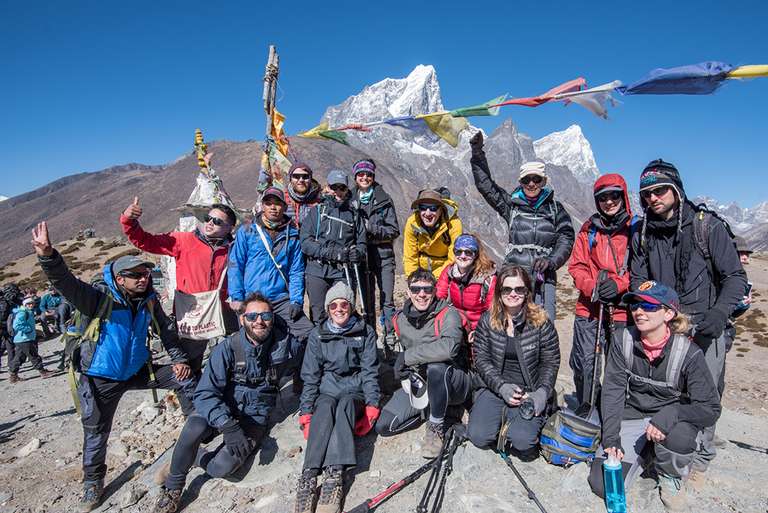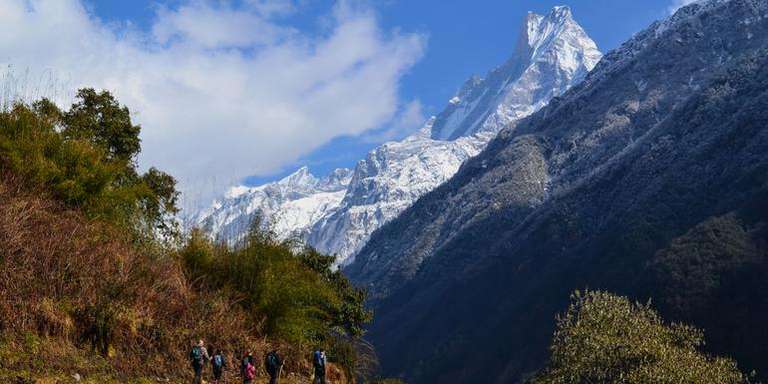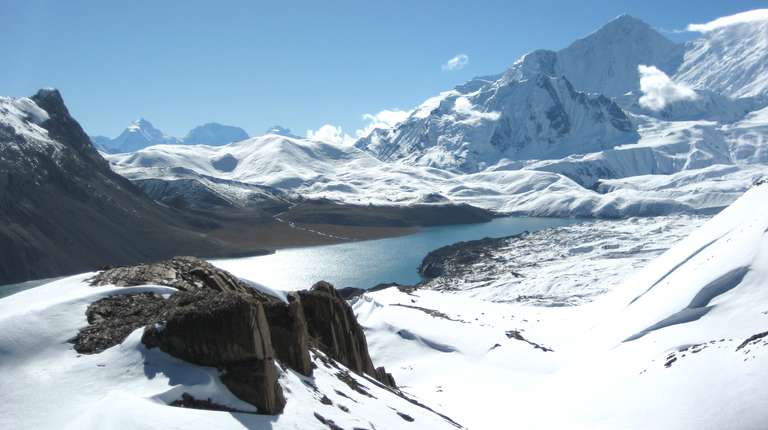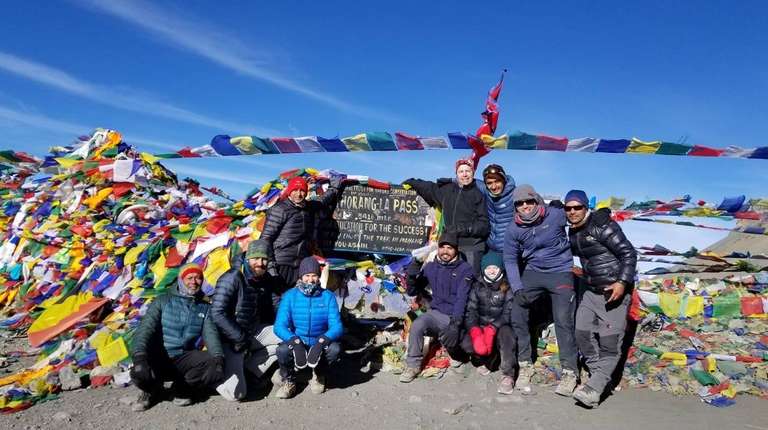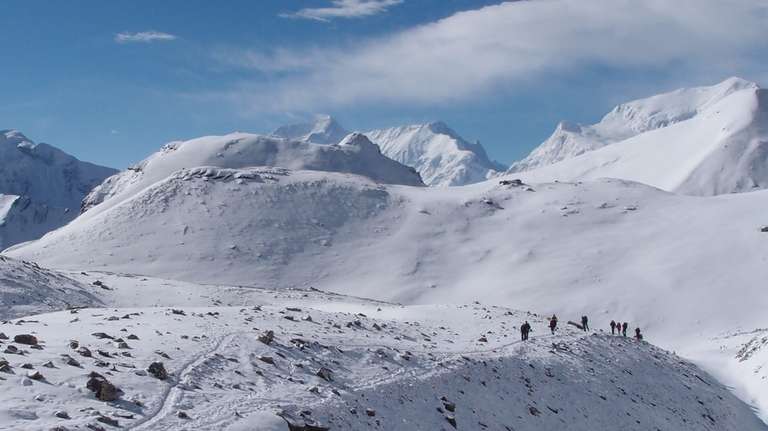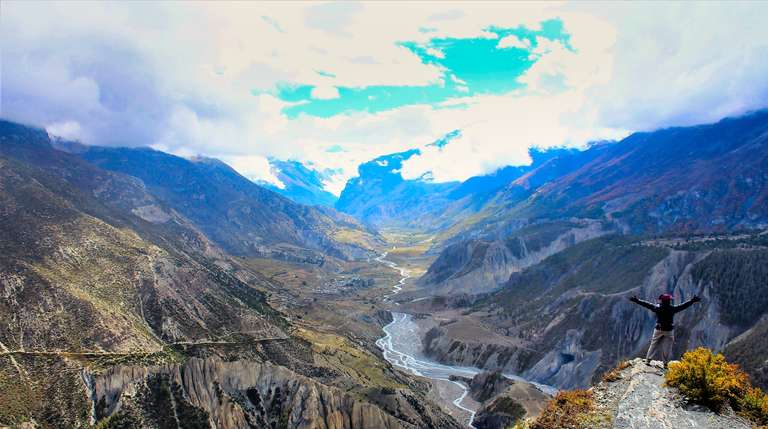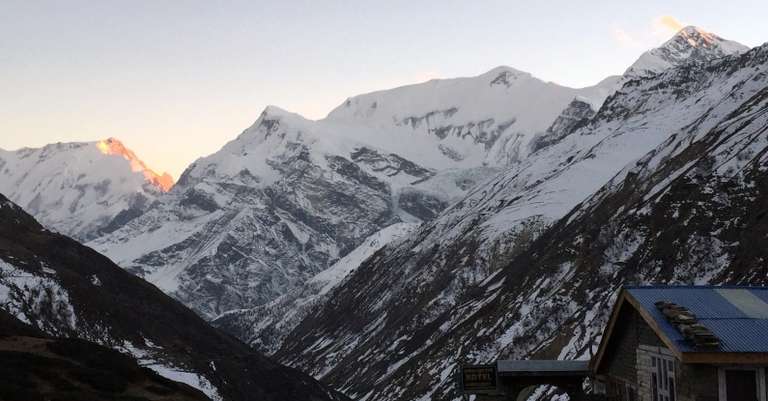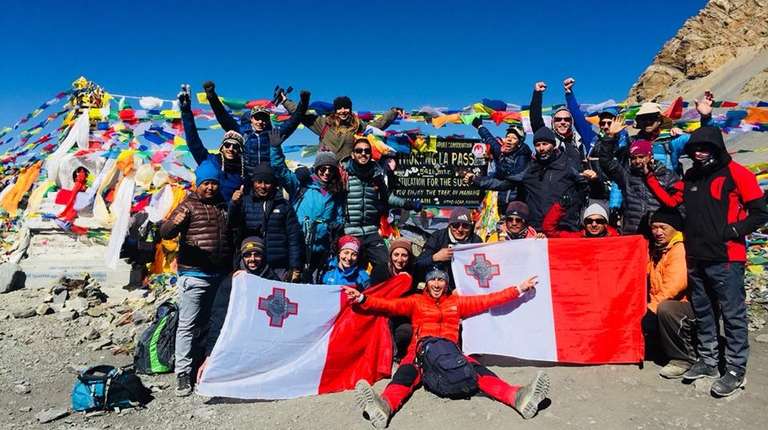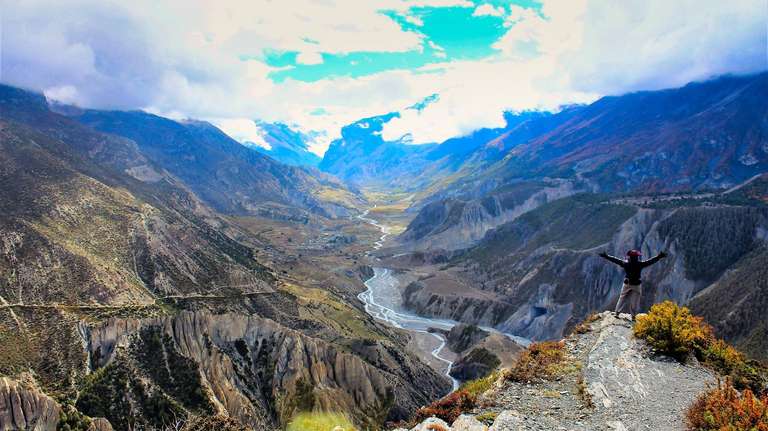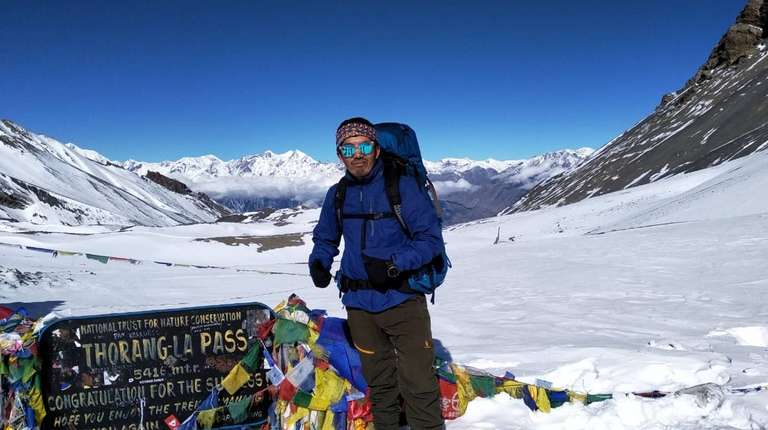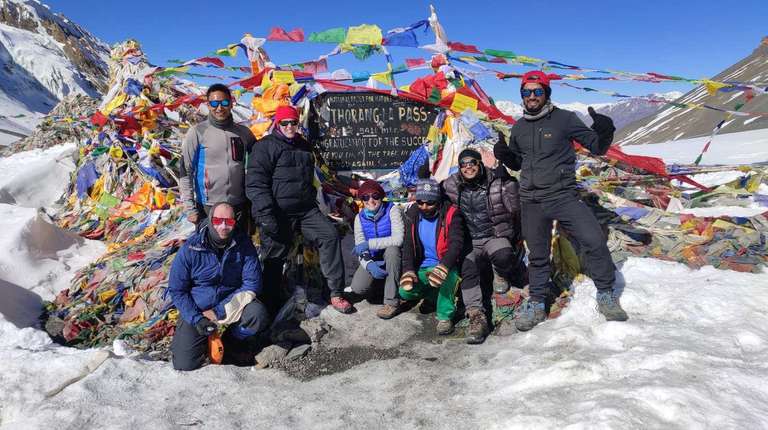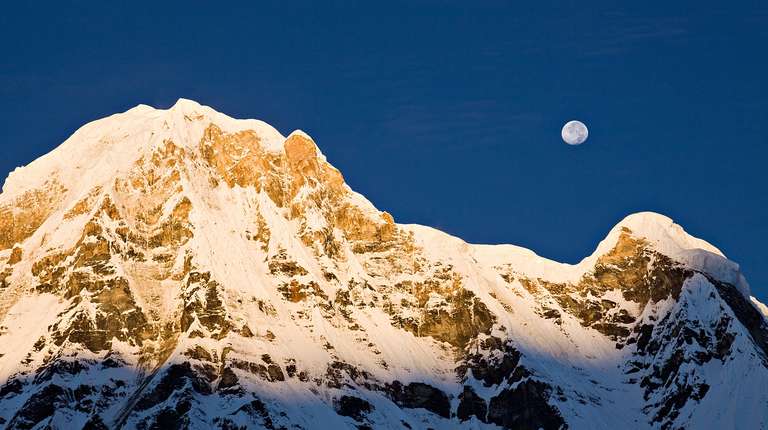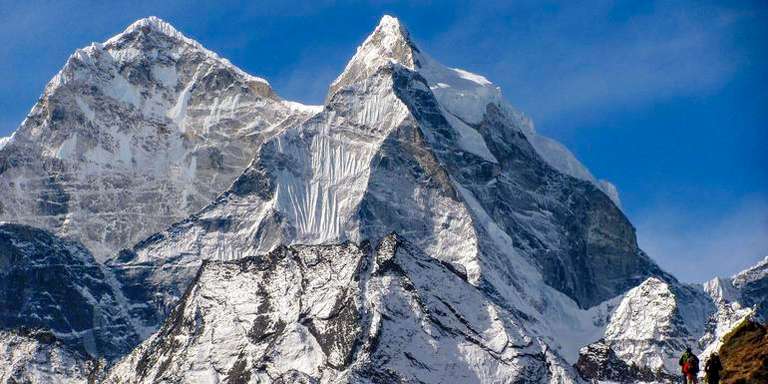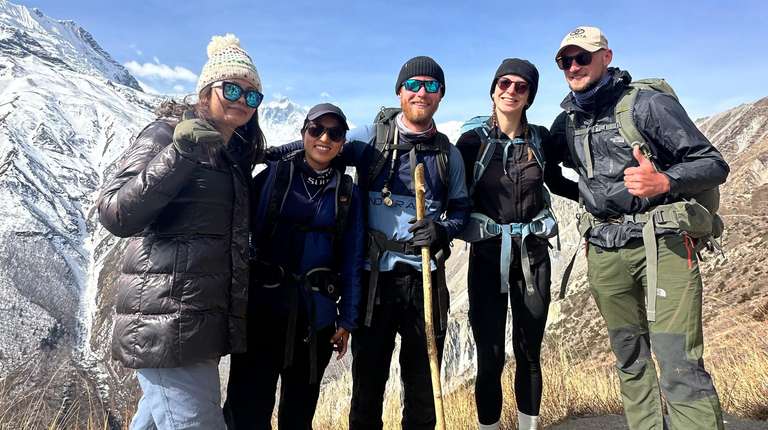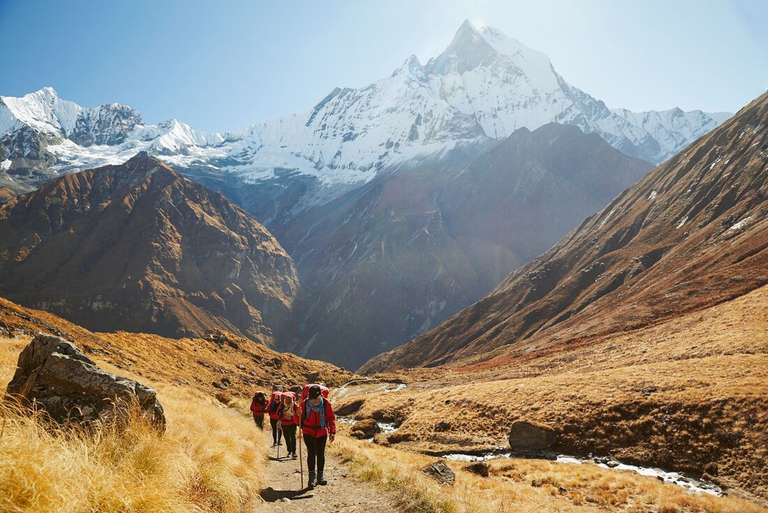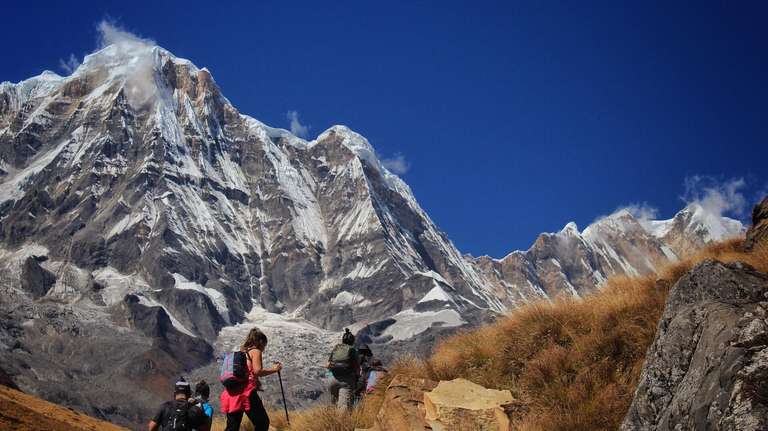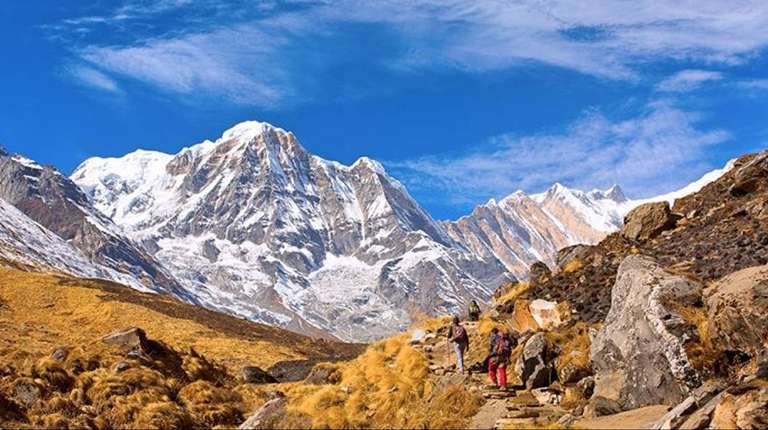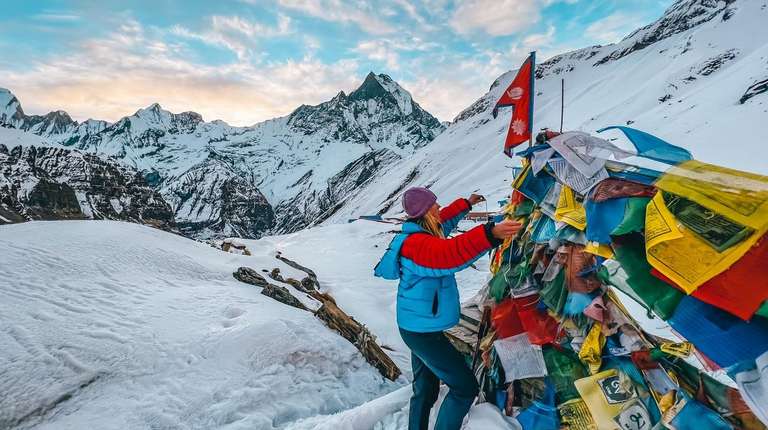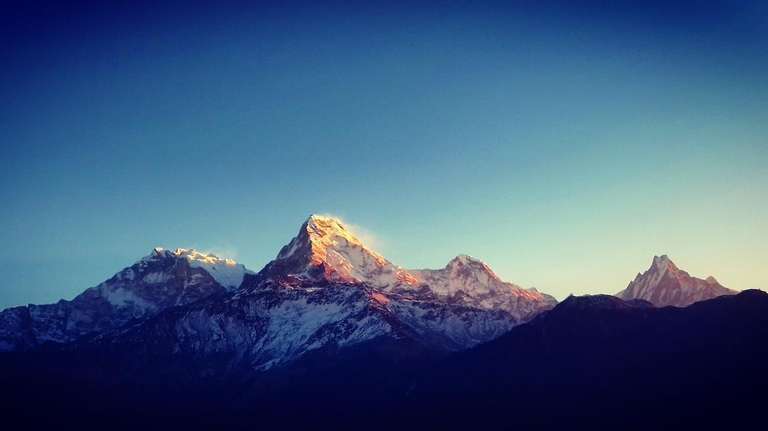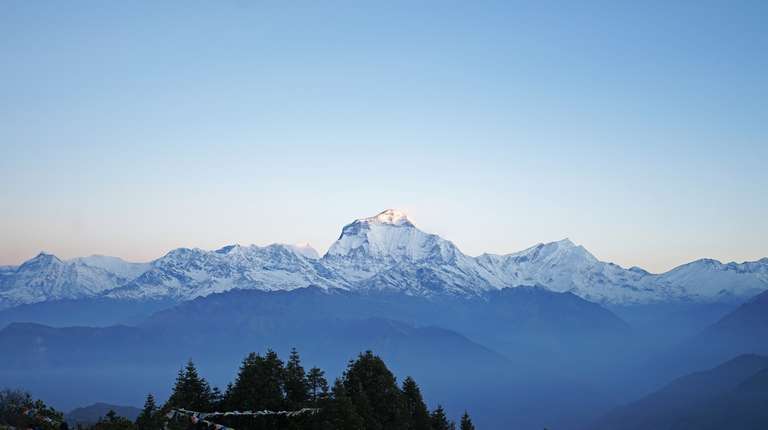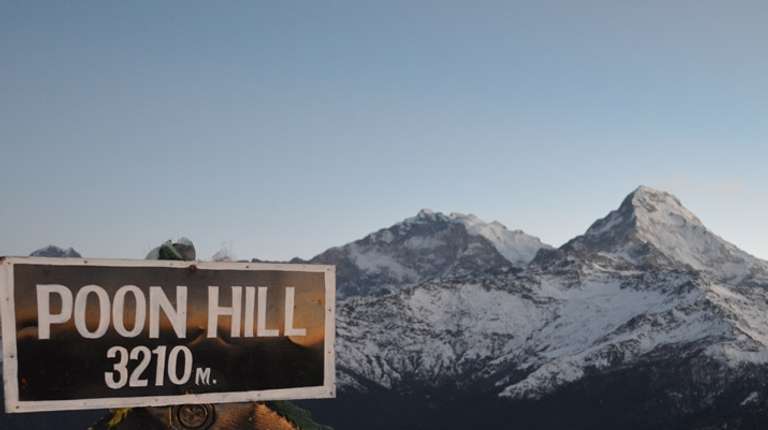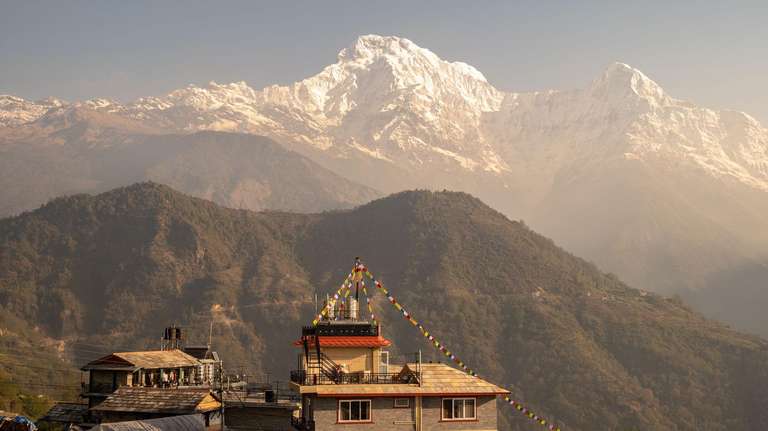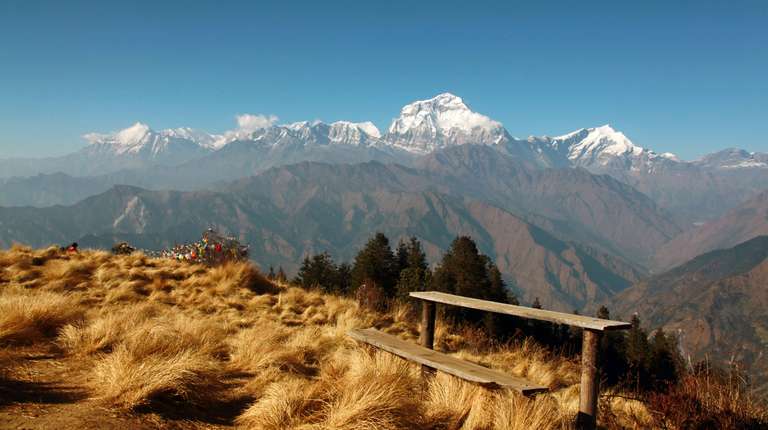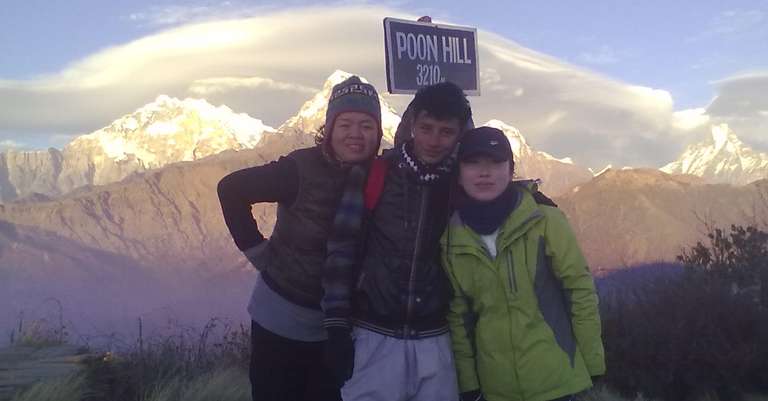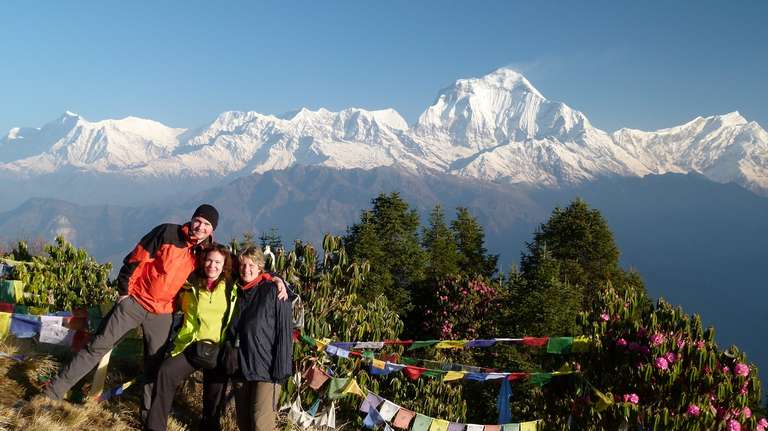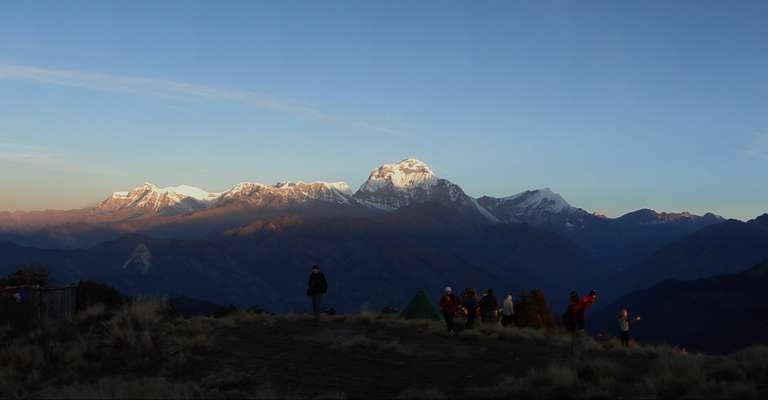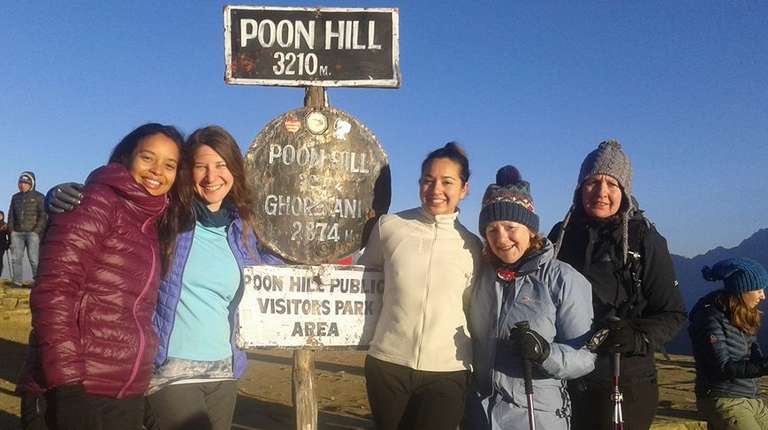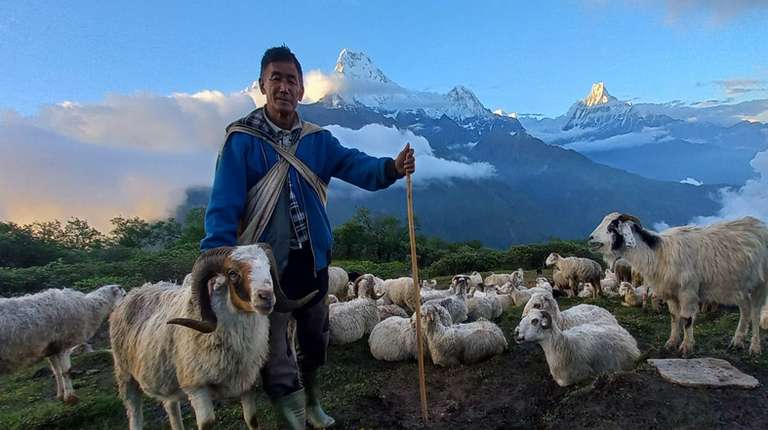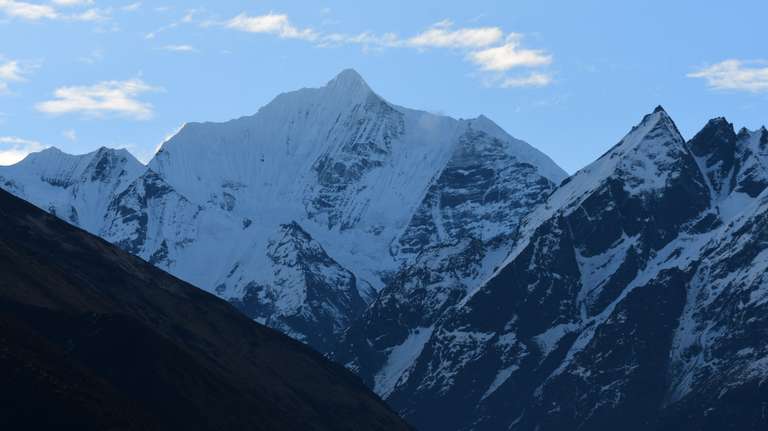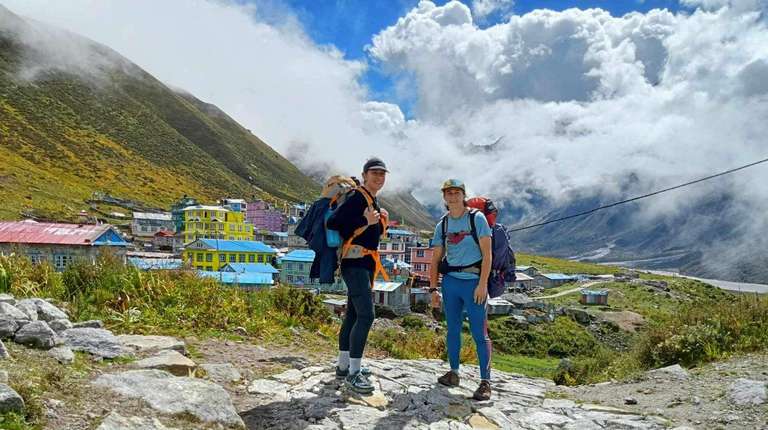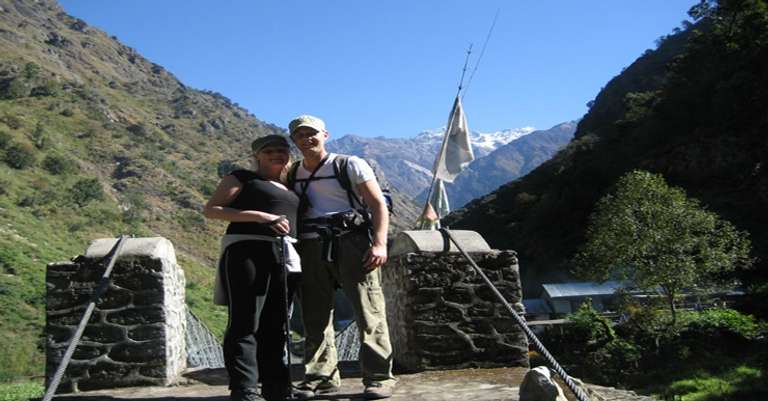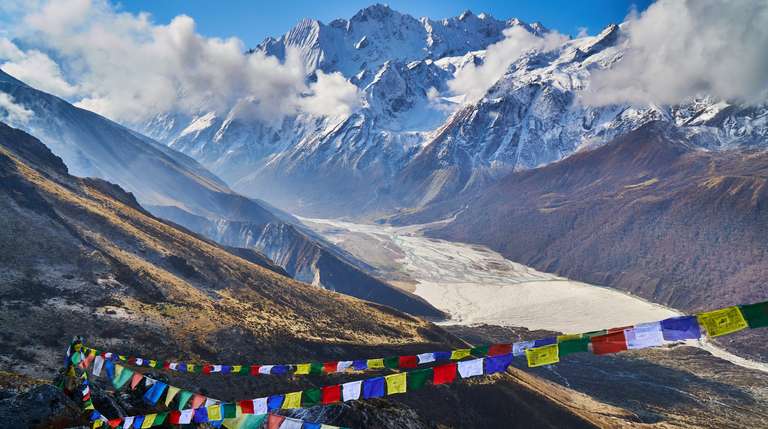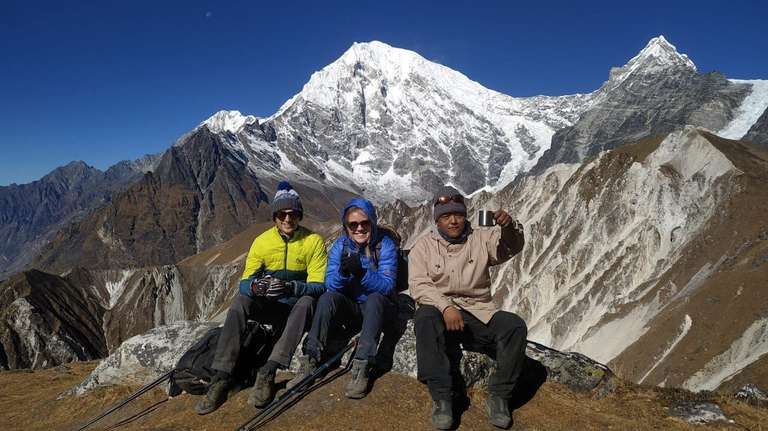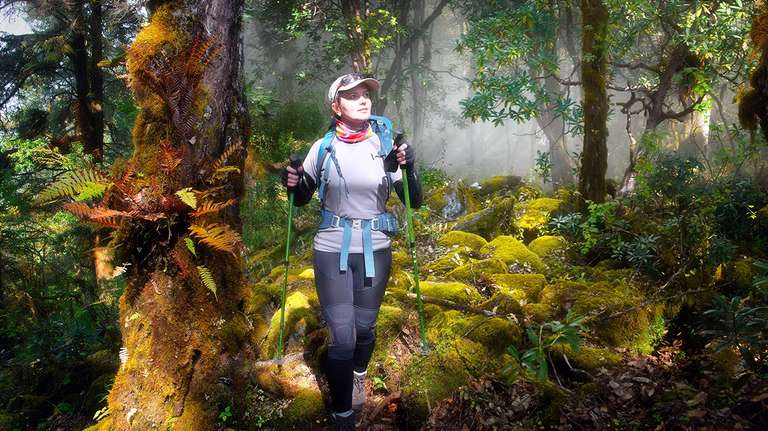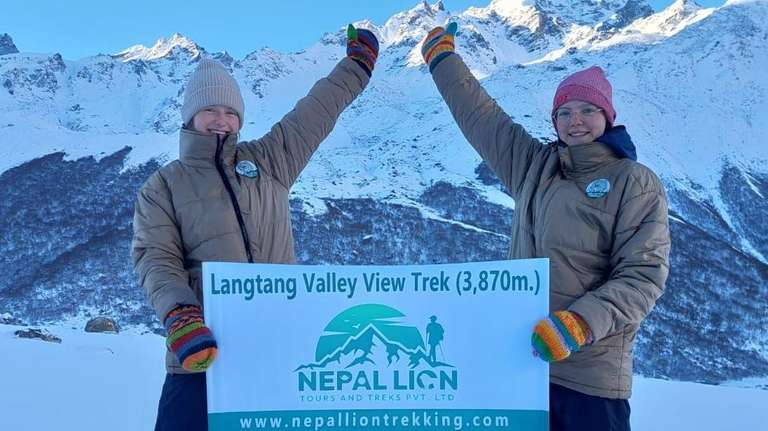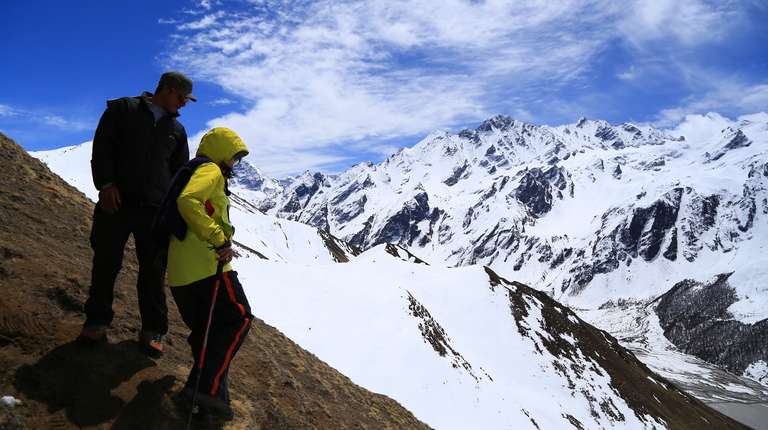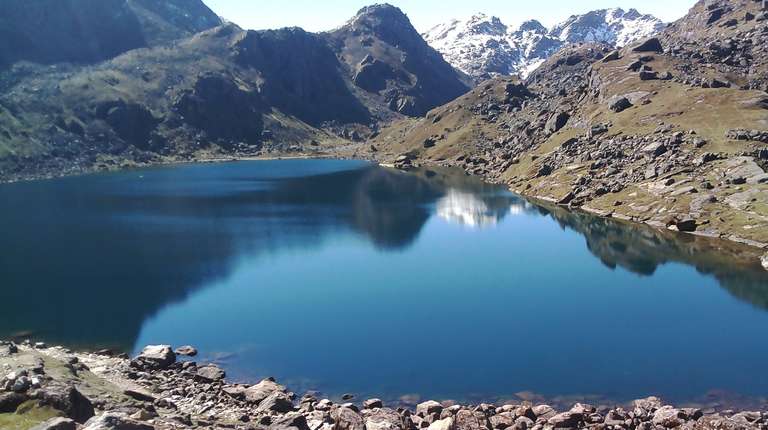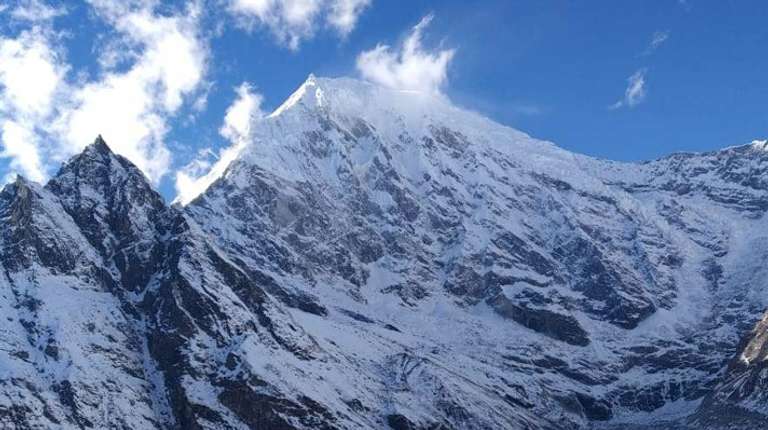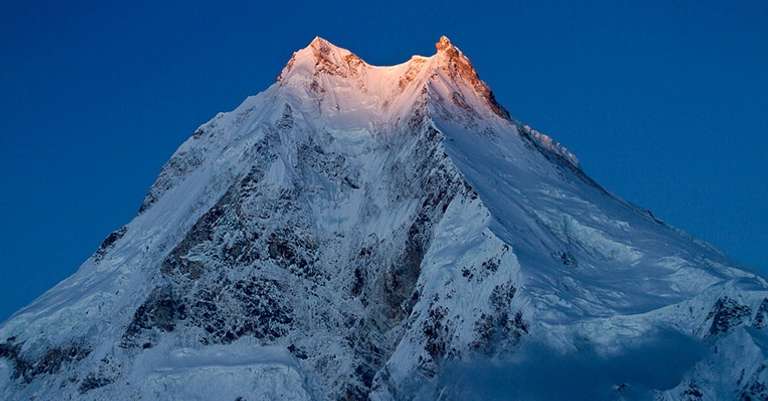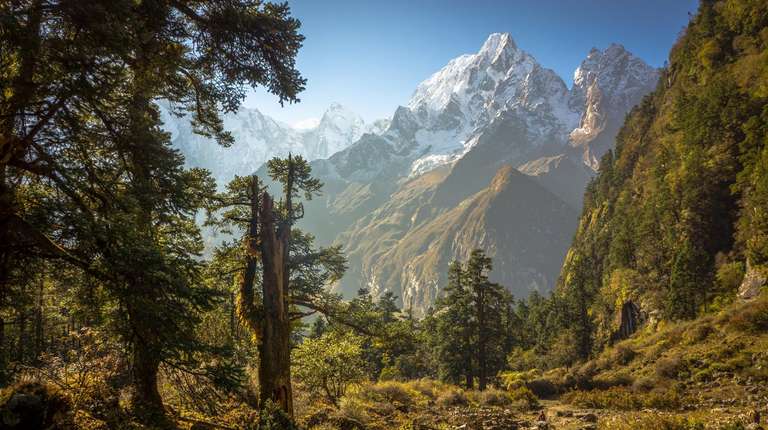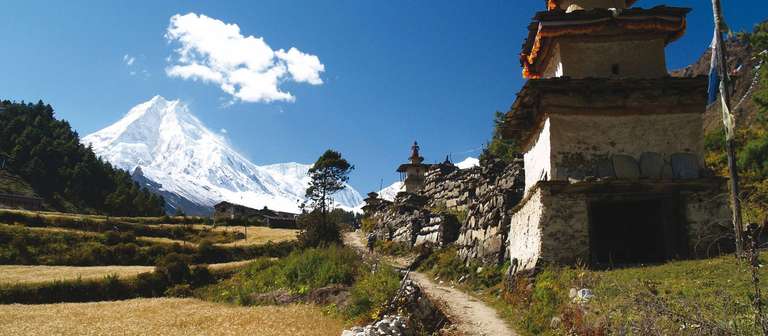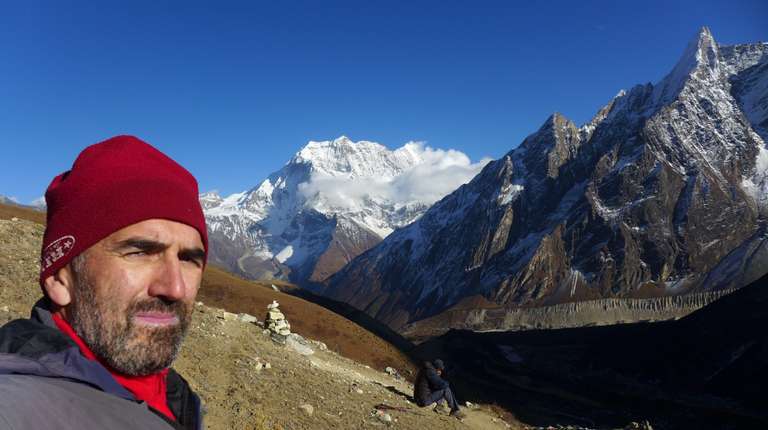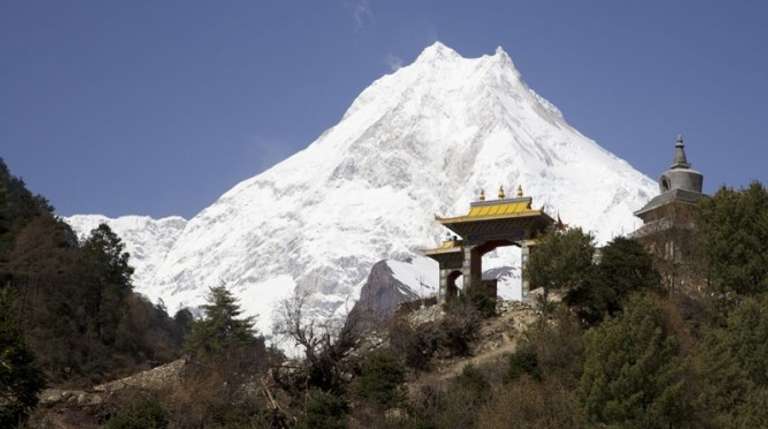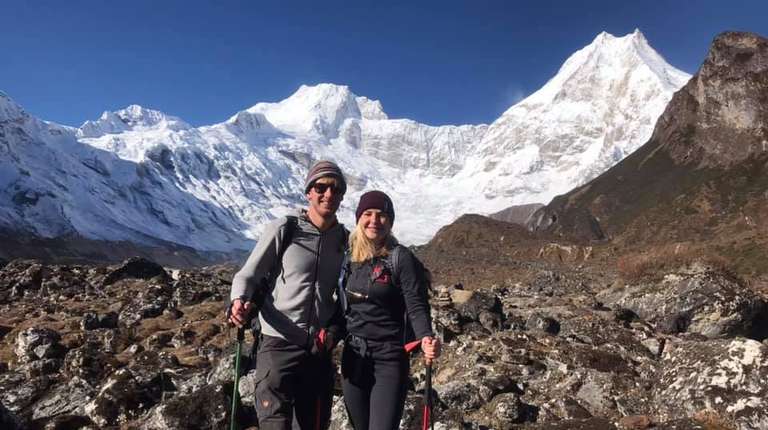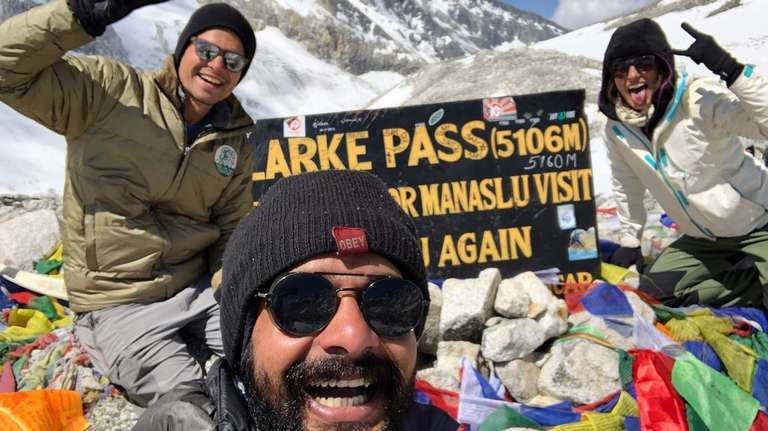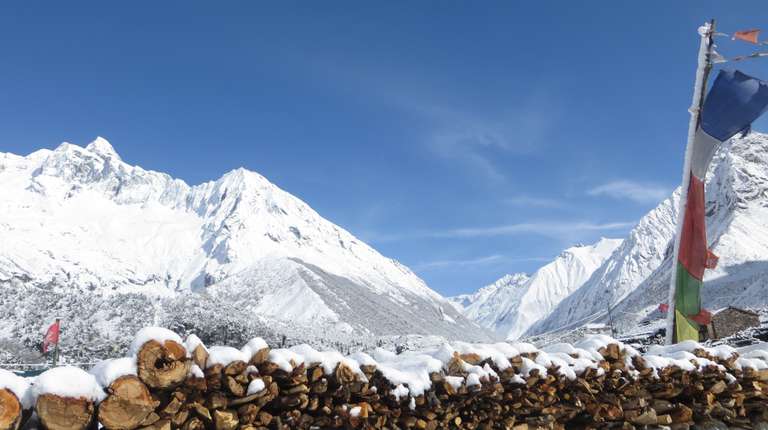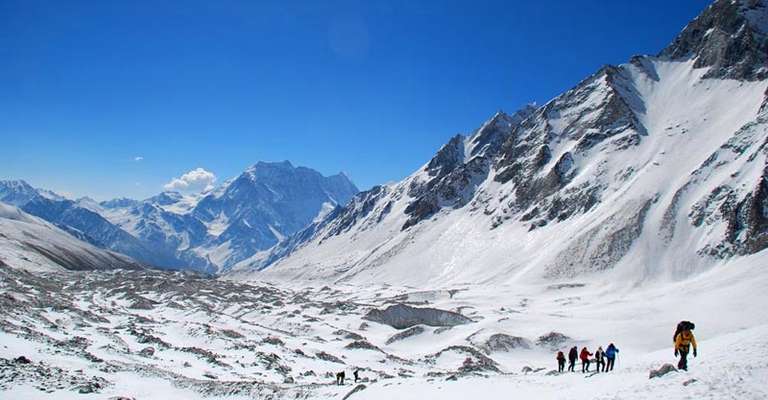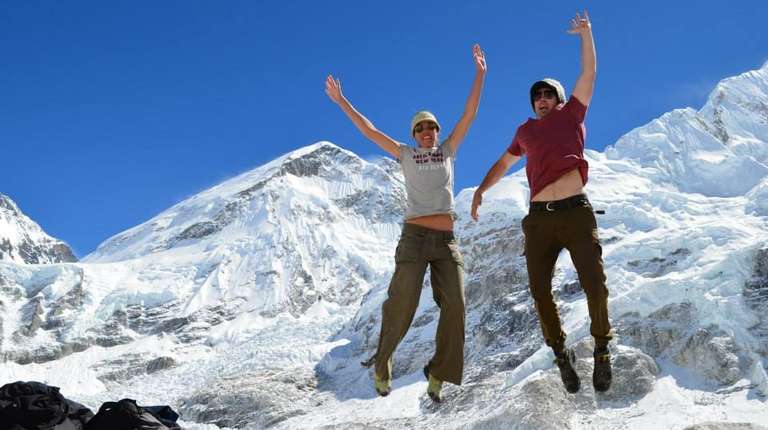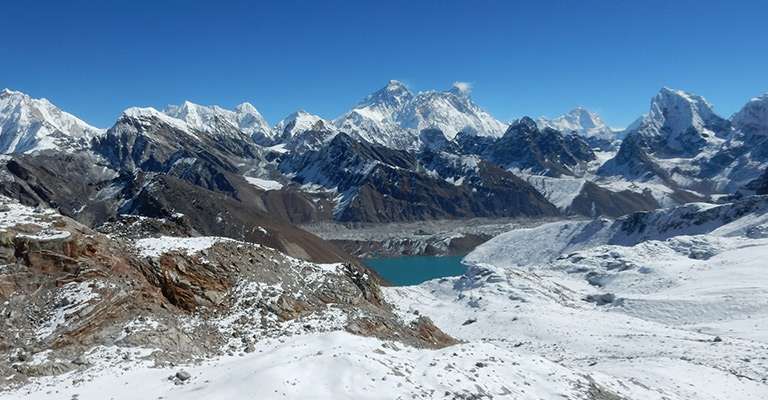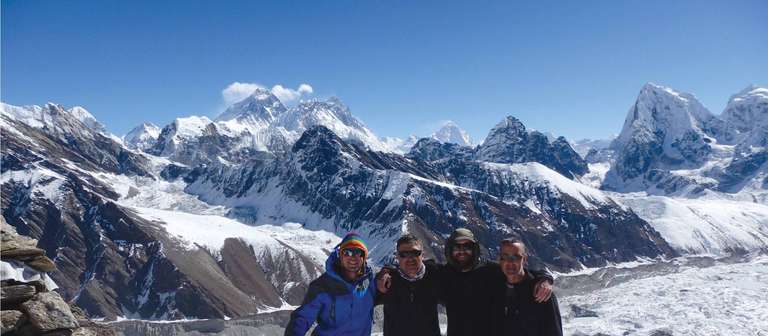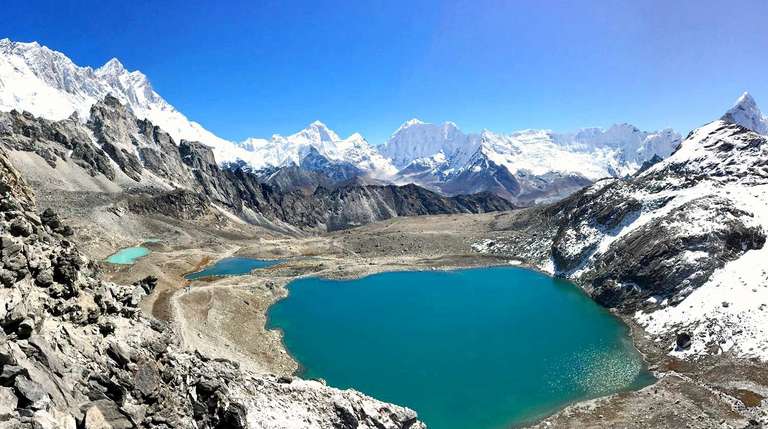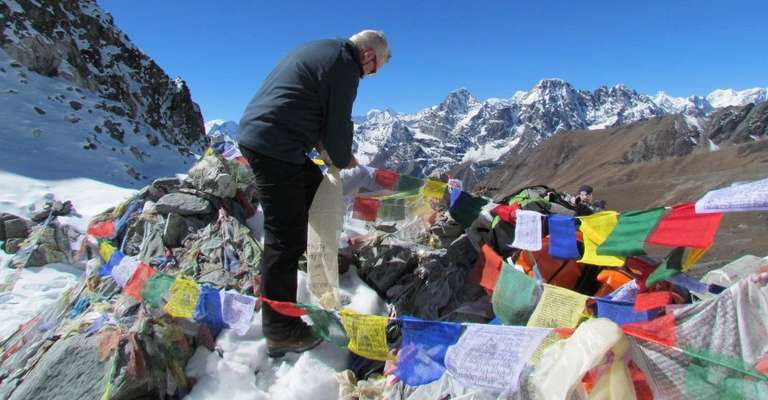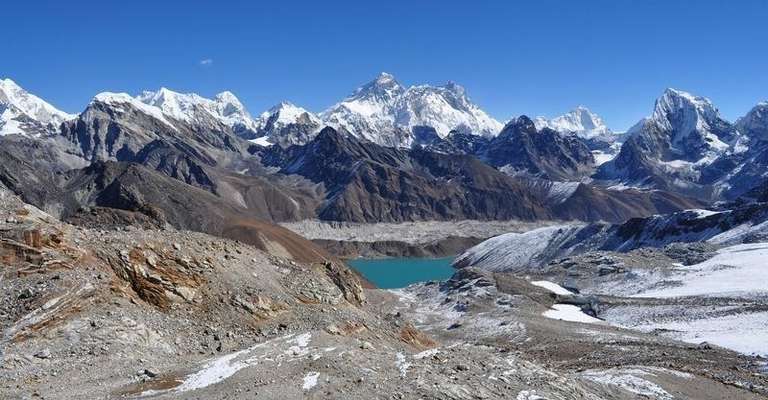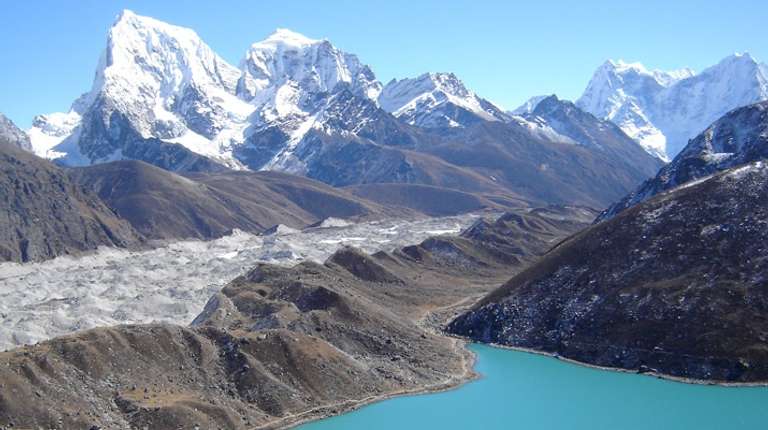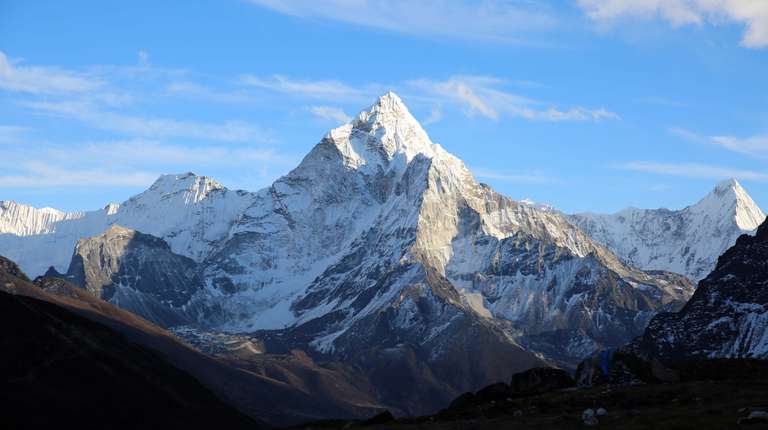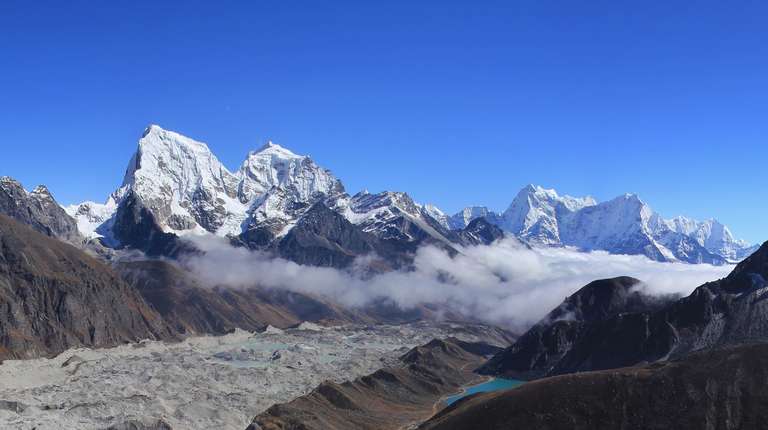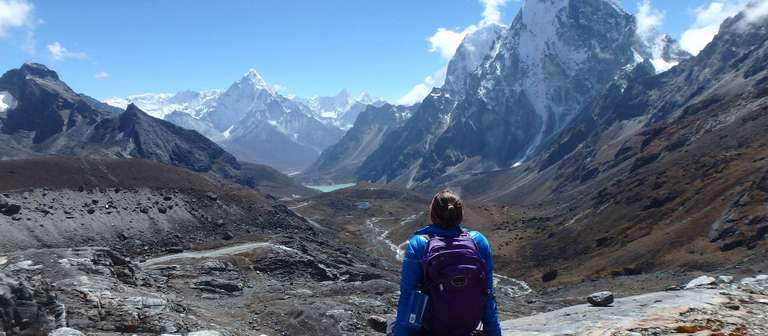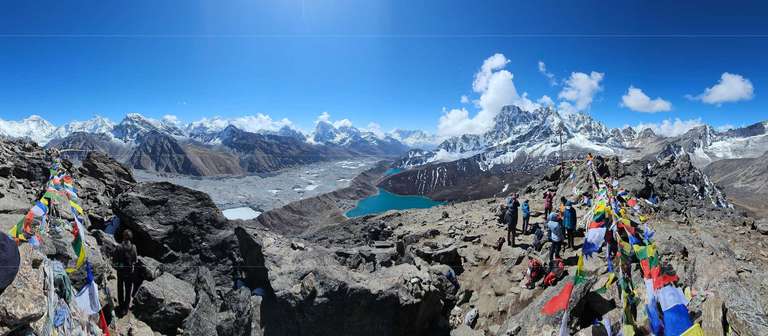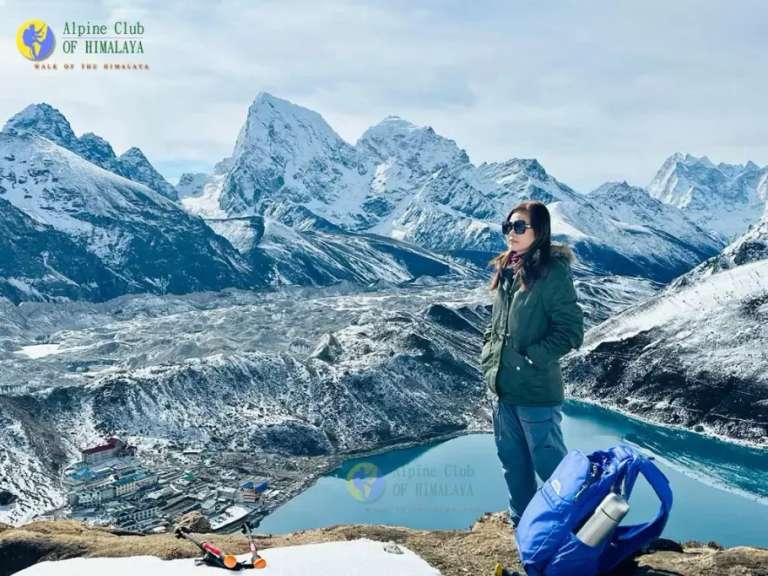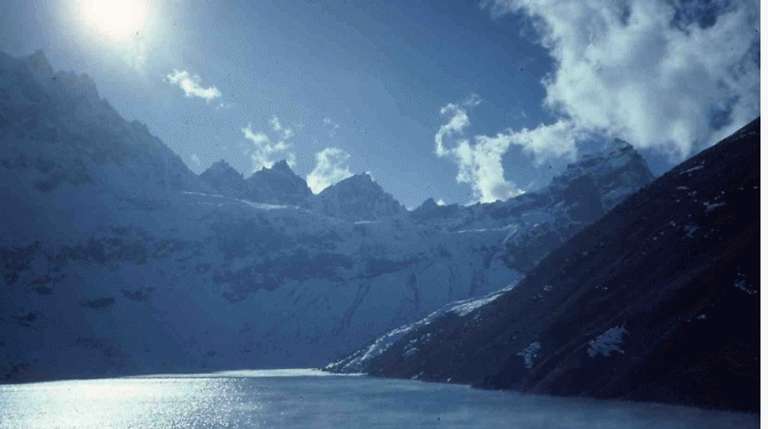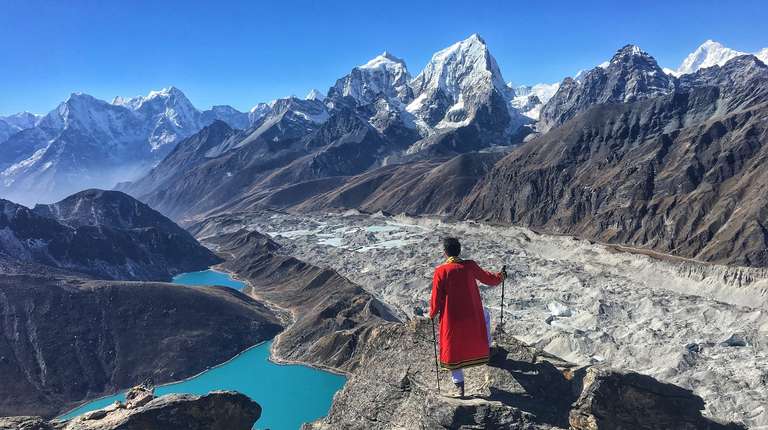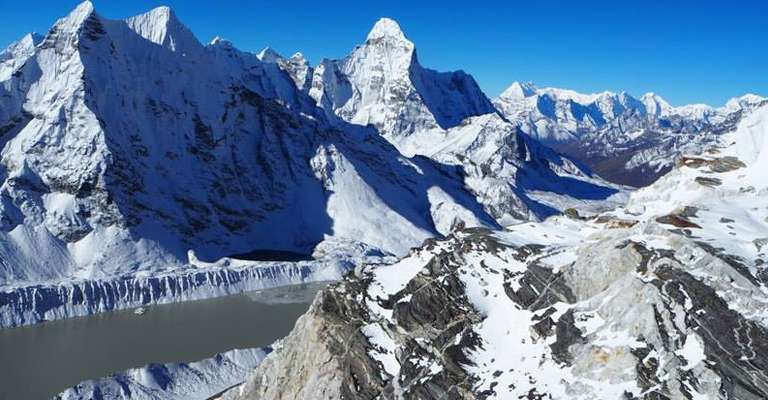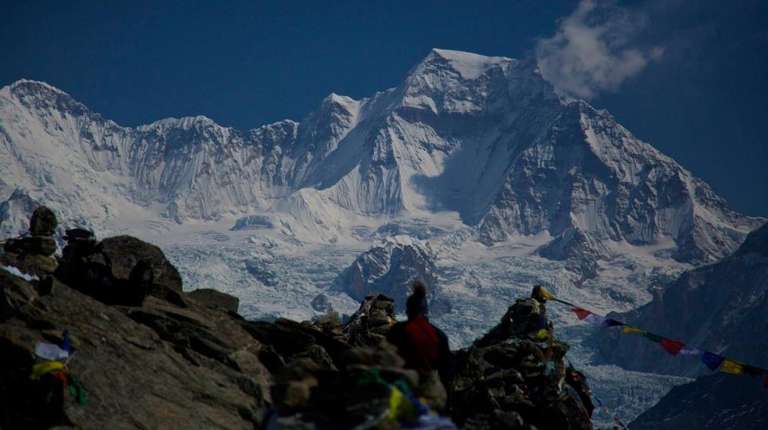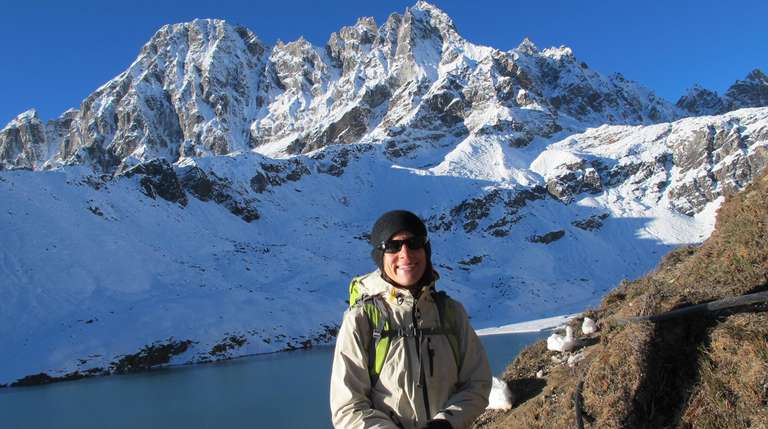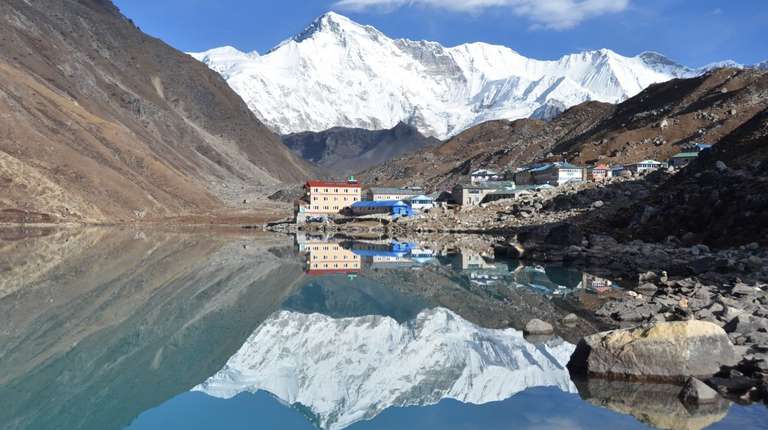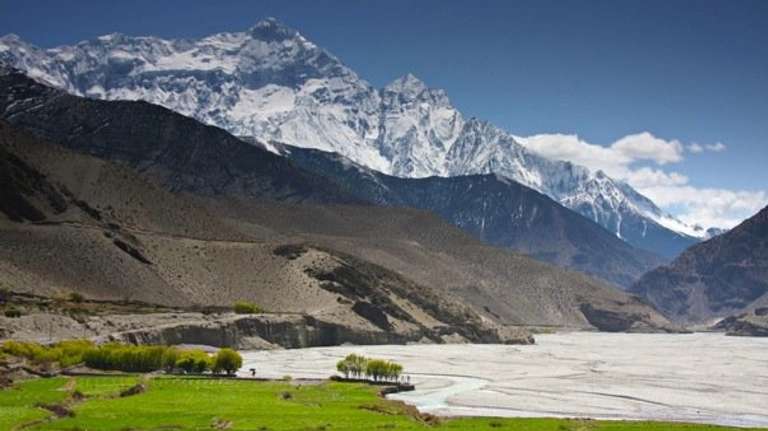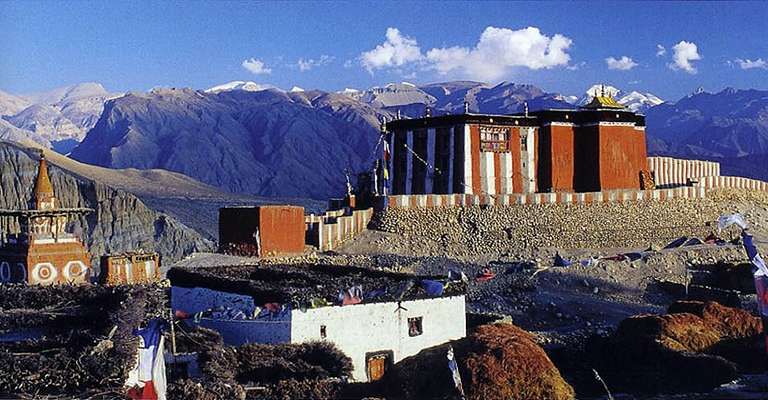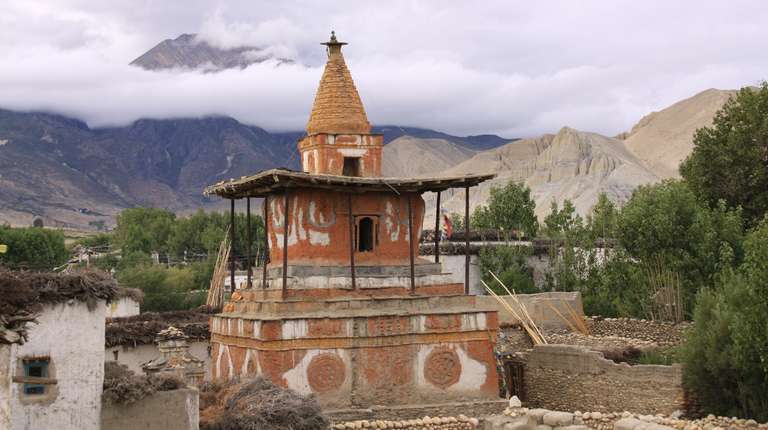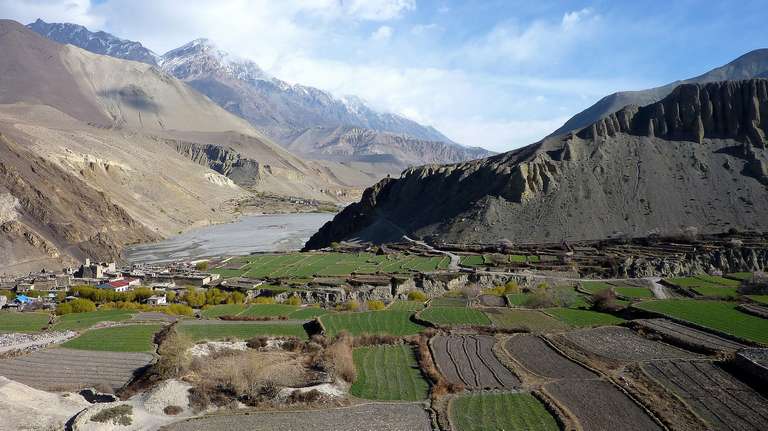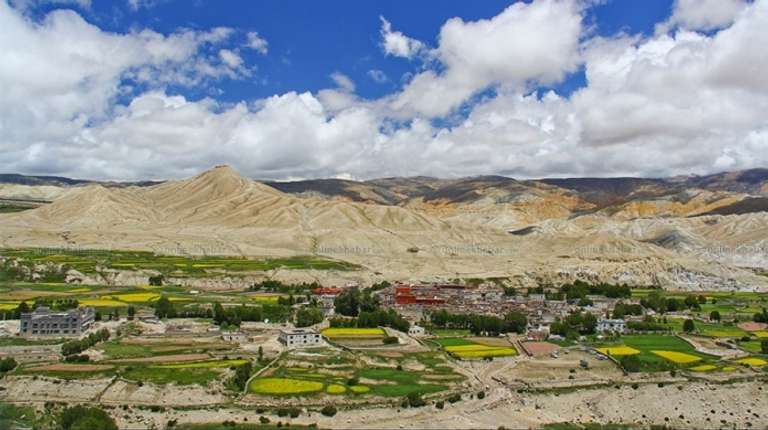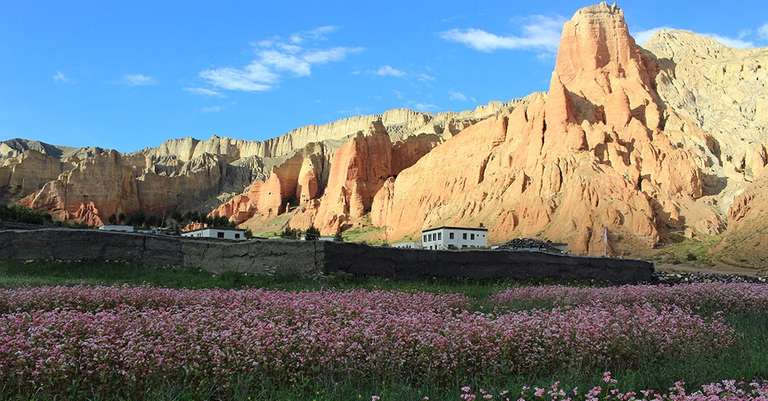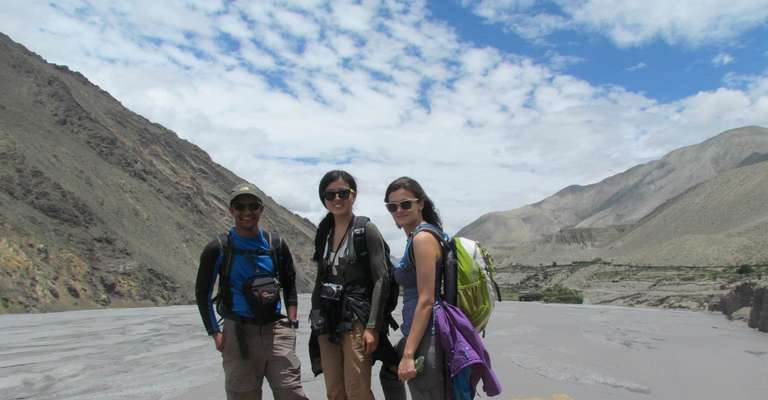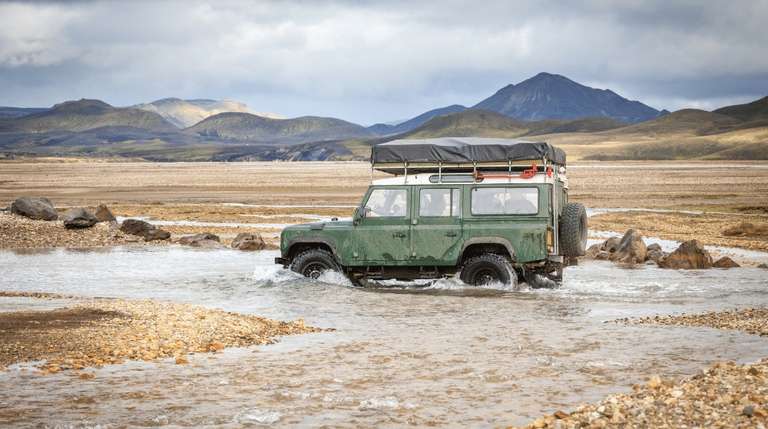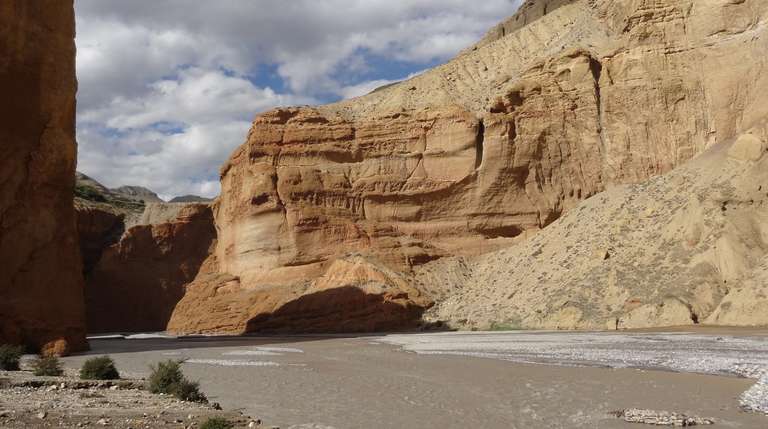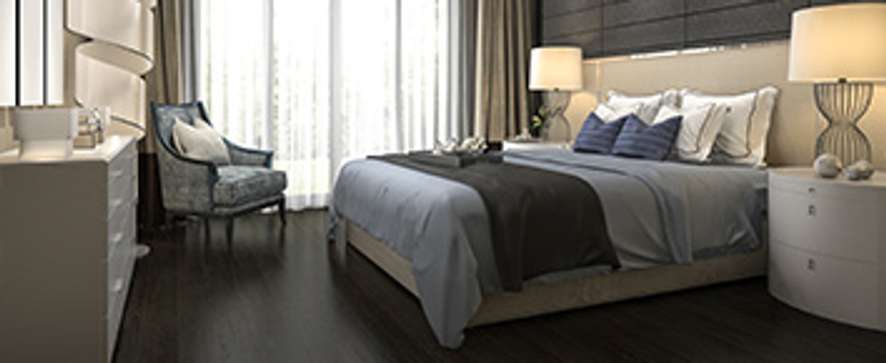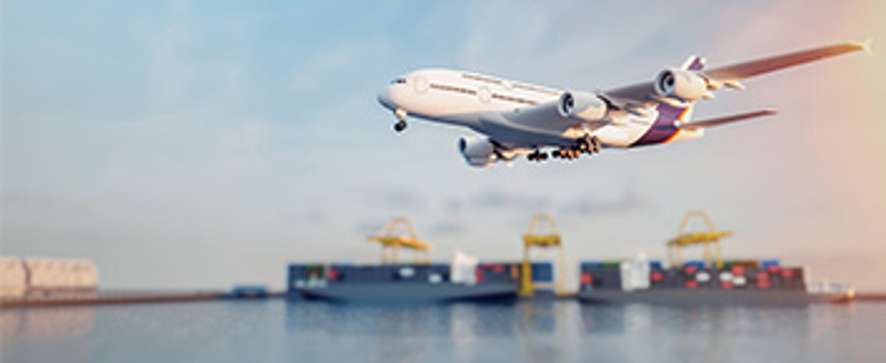Top 14 Best Treks in Nepal

- Clint Eastwood
- From Hungary
- Clint Eastwood
- From Hungary
- JOSEPH EDWARD REPETTO
- From USA
- Werner Bugeja
- From Malta


As one of the most famous treks in the world, the Everest Base Camp trekking trail is also likely the most popular trek in Nepal — and not without good reason. Depending on your route, you’ll trek through the Sherpa village of Namche Bazaar, learn more about the mountain culture at the impressive Sherpa Culture Museum, take in beautiful Himalayan vistas that include Nuptse and Lhotse, and perhaps pass the Khumbu Glacier.
How to get there: Fly from Manthali Airport in Ramechhap to the small town of Lukla during the high season (March to May and September to November). In other months, the flights are regularly operated from Kathmandu Airport. You can also travel overland from Kathmandu to Jiri by bus (approximately 186 km) and begin your trek here.
Highlights
- Stand face-to-face with Mount Everest and experience Everest Base Camp itself.
- Summit Kala Patthar at 5,600 m, a vantage point providing fantastic views of majestic peaks such as Nuptse, Lhotse, and Mount Everest.
- Get amazing views of the Himalayas, pass high suspension bridges, and climb steep inclines.
- Explore the temporary settlement of Gorakshep and interact with local Sherpas who reside in the area only during the trekking season in Nepal.
Lowlight
- You'll trek up and down on more or less the same trail.
Trek Facts
| Trekking difficulty | Medium |
| Trekking experience | Experienced |
| Number of days | 12 |
| Family-friendly | Yes. Even possible to take a shortened version, more suitable for kids. |
| Popularity | Very popular trek but in some quite remote areas. |
| Pricing ($ per day) | Medium |
| Best seasons | March–May and September–November |
| Accommodation types | Guesthouses and lodges |
| Restricted permits | No |
| Max elevation | 5,600 m, Kala Patthar |
| Accessible during winter (Dec–Jan) | Yes |
⇒ Compare prices for Everest Base Camp or Get 5 Free Trekking Offers for Everest Base Camp
More information:
Best time to trek to Everest Base Camp
How long does the Everest Base Camp trek take
How to get to Everest Base Camp


Commonly known as one of the best trekking routes in Nepal, the trek to Annapurna Circuit takes you between tea houses (mountain hut accommodations) and small mountain villages, all the way up to the Thorong La Pass with stunning views of both the Annapurna and Dhaulagiri Ranges. It is also one of the busiest trekking places in Nepal, so it can get really crowded, especially in the fall season.
How to get there: You can fly from Pokhara to Jomsom to start your trek or get the bus from Pokhara to either Chame or Manang.
Highlights
- Crossing the world's widest pass—the Thorong La Pass at 5,416 m.
- Diverse trekking terrain as a result of high differences in altitudes.
- Very well-developed trekking trail with a high degree of comfort (lots of choice in terms of restaurants, accommodations, and amenities).
- Explore Tilicho Lake and Ice Lake, both above 4000 m of elevation.
- Get amazing views of Machhapuchhre, Annapurna I, and Gangapurna.
Lowlight
- Higher altitudes mean an increased risk of altitude sickness, symptoms of which include nausea, dizziness, headaches, and more.
Trek Facts
| Trekking difficulty | Moderate to hard |
| Trekking experience | Experienced |
| Number of days | 12/15 |
| Family-friendly | Not recommended due to high altitudes and number of days. |
| Popularity | Very popular due to well-established tea houses, lodges, and facilities along the trail. |
| Pricing ($ per day) | Cheap |
| Best seasons | March–May and October–November |
| Accommodation types | Guesthouses and lodges |
| Restricted permits | No |
| Max elevation | 5,416 m, Thorong La Pass |
| Accessible during winter (Dec–Jan) | Yes |
⇒ Compare prices for Annapurna Circuit or Get 5 Free Trekking Offers for Annapurna Circuit
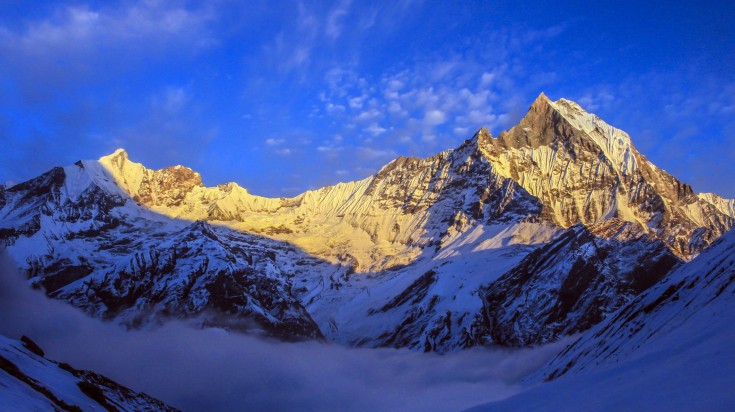

The Annapurna Base Camp trek only takes a maximum of 14 days but will leave you with a lifelong experience. Marvel at the amazing views of the Annapurna range, stop at tea houses along the way and enjoy lunch at Poon Hill Station, the historically and culturally rich spot that many elite Gurkha soldiers call home. Don’t forget to relax in Jhinu Hot Springs! It’s a relatively difficult trek with a lot of stairs, so keep that in mind.
How to get there: To begin this trek, get the 2-hour bus from Pokhara to Nayapul.
Highlights
- Get majestic views of Annapurna I, Annapurna South, Machhapuchhre, and Hiunchuli.
- Explore Annapurna Conservation Area and its unique flora and fauna, including the rhododendron forest.
- Post-trek, spend a few days in the nearby lake town of Pokhara for good food, cafes, an after-trek massage, or a boat ride
Lowlight
- The trail has quite a few stairs.
Trek Facts
| Trekking difficulty | Moderate |
| Trekking experience | Intermediate |
| Number of days | 10–14 |
| Family-friendly | Recommended, especially for older children. |
| Popularity | Very popular as the trek is more accessible and less demanding. |
| Pricing ($ per day) | Cheap |
| Best seasons | March–May and September–November |
| Accommodation types | Guesthouses and lodges |
| Restricted permits | No |
| Max elevation | 4,320 m, Annapurna Base Camp |
| Accessible during winter (Dec–Jan) | Yes. However, in rare cases, the route is closed due to avalanches and heavy snowfall. |
⇒ Compare prices for Annapurna Base Camp or Get 5 Free Trekking Offers for Annapurna Base Camp


If you only have four days to spare for trekking in Nepal, jump on a Poon Hill trek. On this relatively short trek in Nepal, you will explore the historic and culturally-rich Ghandruk area and take in views of both the Dhaulagiri Mountain Ranges and Annapurna. One of the best things is that this route is viable during the winter season, which is rare when trekking in Nepal. It is also a great trekking option for families trekking with children.
How to get there: Start from the popular city of Pokhara, which is accessible from Kathmandu by bus or by plane, and travel by bus to Nayapul.
Highlights
- The trek only takes about four days which is great if you are short on time.
- Sunrise atop Poon Hill with a fantastic panoramic view of the Himalayas.
- Traverse terraced fields, dense forests, and picturesque valleys.
- Enjoy the warm hospitality of the Gurung and Magar communities.
Lowlight
- The trekking trail can be quite crowded during the high season.
Trek Facts
| Trekking difficulty | Easy to moderate |
| Trekking experience | Beginner |
| Number of days | 4 |
| Family-friendly | Recommended for all ages. Can be adjusted (number of days, stops, etc) to be easier. |
| Popularity | Very popular, especially as it is a short trek. Be prepared for busy routes during peak season. |
| Pricing ($ per day) | Cheap |
| Best seasons | March–May and September–November |
| Accommodation types | Guesthouses and lodges |
| Restricted permits | No |
| Max elevation | 3,210 m, Poon Hill |
| Accessible during winter (Dec–Jan) | Yes. |
⇒ Compare prices for the Poonhill Trek or Get 5 Free Trekking Offers for the Poonhill trek


If you’re heading up to the northern border with Tibet, check out the Langtang Trek. Ranging anywhere from 7–13 days, it’s a moderately difficult trek that takes in monasteries such as Kyanjin Gompa, immerses you in the culture of the brightly dressed Tamang people, and offers stunning views of Tserko Peak—your eventual goal!
How to get there: You will need to either drive or catch the bus from Kathmandu to Syabrubesi which takes anywhere between 6–9 hours depending on the road conditions and type of vehicle — consider sharing a Jeep. Some tours include this transfer as part of the experience.
Highlights
- Reaching the top of Tserko Peak at an altitude of 4,984 m.
- Trekking terrain includes meadows, yak pastures, and the glacial Langtang River.
- Explore Langtang National Park, home to the endangered red panda and lush bamboo groves.
- Optional visit to the scenic Gosainkunda Lake (4,380 m), which holds religious significance for Hindus and Buddhists.
Lowlight
- The trail is out and back for most of the way, so you’ll need to retrace your steps
Trek Facts
| Trekking difficulty | Moderate |
| Trekking experience | Beginner to intermediate |
| Number of days | 7–13 |
| Family-friendly | Recommended as the trek is not too strenuous and only requires reasonable fitness levels. However, it may be a long (and bumpy) car ride for children. |
| Popularity | Very popular as it is one of the shorter and easier treks. |
| Pricing ($ per day) | Cheap |
| Best seasons | March–May and September–mid-December |
| Accommodation types | Guesthouses and lodges |
| Restricted permits | No |
| Max elevation | 4,984 m, Tserko Ri |
| Accessible during winter (Dec–Jan) | Yes. |
⇒ Compare prices for the Langtang Trek or Get 5 Free Trekking Offers for the Langtang Trek


Spend two weeks trekking this circular route, including a day crossing the Larke Pass. Along the way, you’ll visit the Tsum Valley, home to the Tsum people and known as the “Hidden Valley of Happiness," thanks to its Tibetan Buddhist way of life. The Manaslu trek used to be one of Nepal’s best-kept trekking treasures, but now word has spread. It is still one of the best treks in Nepal and remains fairly remote. The Manaslu trek is classified as a hard trek, and you will need to be accompanied by a Nepali guide or porter.
How to get there: Get a bus or drive from Kathmandu to Soti Khola to begin the trek. There are a few jeeps that go this way as well which might be better with the dodgy terrain and takes around 6 hours. Again, this transfer is included in many Manaslu Trek tours.
Highlights
- The day of crossing the Larke Pass — a day of challenge and full adventure!
- The entire trail is a highlight. It is diverse, remote, and secluded, enriched by very different topography as a result of varying altitudes. You'll walk in a circuit and won’t retrace your steps.
- The cozy village of Samagaun from where you'll also visit Manaslu Base Camp.
- Get scenic views of Himalchuli, Ngadi Chuli, and Ganesh Himal.
- Encounter snow leopards, Himalayan musk deer, and Himalayan tahr at Manaslu Conservation Area.
Lowlight
- Accommodation may be scarce, especially during high season.
Trek Facts
| Trekking difficulty | Hard |
| Trekking experience | Experienced |
| Number of days | 13–17 |
| Family-friendly | Not recommended as the trail involves steep ascents, descents, and high mountain passes. |
| Popularity | Less popular and more remote as it lies in a restricted area. |
| Pricing ($ per day) | Medium |
| Best seasons | March–May and September–November |
| Accommodation types | Guesthouses and lodges |
| Restricted permits | Yes. The Restricted Permit for Manaslu area is USD 100 per person per week, and USD 15 per person per day thereafter from September to November. From December to August, the Restricted Permit for Manaslu area is USD 75 per person per week and USD 10 per person per day. |
| Max elevation | 5,106 m, Larke Pass |
| Accessible during winter (Dec–Jan) | The lower part of the Manaslu region is accessible in winter but the Larke Pass is not. |
⇒ Compare prices for the Manaslu Trek or Get 5 Free Trekking Offers for the Manaslu Trek


Looking for the ultimate Everest Base Camp adventure? The Everest Base Camp 3 Passes Trek is a challenging route that takes from 16–18 days to complete. Hike up to Everest Base Camp via the Renjo La Pass and Cho La Pass before descending via the Kongma La Pass.
How to get there: Fly from Manthali Airport in Ramechhap to Lukla to start this trek. In the low season, the flights are regularly operated from Kathmandu Airport itself. Alternatively, you can catch the bus to Jiri from Kathmandu, which is considered the “classic” way to start this trek.
Highlights
- Crossing each of the three passes is a challenge and a great adventure. Kong Ma La represents the biggest challenge as it is the highest of the three passes.
- The trekking trail includes three high passes, each over 5,000 m, making it diverse and secluded.
- The three passes route is one of the less-trodden areas of the Everest region, which means the landscape is pristine and untouched.
- See the stunning reflections of the Himalayas on Gokyo Lakes, situated at 4,700 m.
- Cross the Himalayas' widest glacier — the Ngozumpa Glacier.
Lowlight
- The trek requires significant effort, endurance, and proper acclimatization as you need to cross three passes.
Trek Facts
| Trekking difficulty | Hard |
| Trekking experience | Experienced |
| Number of days | 16–18 |
| Family-friendly | Not recommended due to the high altitude (all three passes are above 5,000 m). |
| Popularity | Popular among trekkers looking for more challenging treks. |
| Pricing ($ per day) | Medium |
| Best seasons | March–May and September–November |
| Accommodation types | Guesthouses and lodges |
| Restricted permits | No |
| Max elevation | 5,540 m, Kong Ma Pass |
| Accessible during winter (Dec–Jan) | No |
⇒ Compare prices for the Everest Base Camp 3 Passes Trek or Get 5 Free Trekking Offers for the Everest Base Camp 3 Passes Trek


Trek up to the five different emerald Gokyo Lakes, nestled in the mighty Himalayas. Visit the mountain village of Gokyo, check out the historic Tengboche Monastery, follow along the stunning Dudh Koshi River, and stop off at the Gokyo Ri viewpoint for one of the best mountain views in the world. As many tourists opt for mountain treks, this is a relatively remote and empty route.
How to get there: To get to the Gokyo Lakes, you actually follow the start of the Everest Base Camp trek, so you’ll fly into Lukla and trek around seven days to the lakes. Again, you can also go overland via bus from Kathmandu to Jiri and start from there
Highlights
- Visit Sherpa villages such as Namche Bazaar, Dole, and Machhermo and interact with the locals.
- The five emerald-green lakes of the Gokyo Region.
- Head to Gokyo Ri — a peak and vantage point providing the best panoramic view of Mount Everest, Lhotse, Makalu and Cho Oyu.
- Visit Sagarmatha National Park, a UNESCO World Heritage Site.
Lowlight
- Unless you are also crossing the Renjo La Pass, it's almost the same trail up and down.
Trek Facts
| Trekking difficulty | Hard |
| Trekking experience | Experienced |
| Number of days | 16–18 |
| Family-friendly | Not recommended due to the high altitude (all three passes are above 5,000 m). |
| Popularity | Popular among trekkers looking for more challenging treks. |
| Pricing ($ per day) | Medium |
| Best seasons | March–May and September–November |
| Accommodation types | Guesthouses and lodges |
| Restricted permits | No |
| Max elevation | 5,540 m, Kong Ma Pass |
| Accessible during winter (Dec–Jan) | No |


If you’re looking for an other-worldly experience trekking in Nepal, head up to the treeless and isolated Upper Mustang Region. This Tibetan cultural mecca is rife with hospitality (including many opportunities for homestays with locals), and benefits from warmer weather in the winter months. Once extremely remote and cut off from many outside influences, the Upper Mustang Trek is becoming increasingly popular, especially for adventurers who want to enjoy a longer hike in the winter season. This region was known as the Kingdom of Lo until pretty recently (the monarchy was abolished in 2008), and the fascinating Lo culture, which includes cave dwellings and the springtime Tiji festival, is alive and well!
How to get there: Fly from either Kathmandu or Pokhara to Jomsom in the north to start this trek.
Highlights
- The Mustang area's capital city — Lo Manthang. This ancient walled city is deeply rooted in Tibetan Buddhist culture and features unique architectural techniques such as white-washed mud-brick structures.
- Treeless and barren landscapes make it strikingly different from other treks in Nepal.
- Explore ancient caves and discover intricate rock carvings, ancient manuscripts, and Buddhist paintings.
Lowlight
- Relentless afternoon winds can be a challenge.
- Special restricted permits are needed.
Trek Facts
| Trekking difficulty | Medium to hard |
| Trekking experience | Experienced |
| Number of days | 14 |
| Family-friendly | Recommended, but skip Teri La Pass if you are taking children. |
| Popularity | Moderate popularity as it lies in a restricted area but considered an off-the-beaten-path destination. |
| Pricing ($ per day) | High |
| Best seasons | March–September |
| Accommodation types | Guesthouses and lodges |
| Restricted permits | Yes. The Restricted Permit for Upper Mustang costs USD 500 per person for up to 10 days and USD 50 per person per day after 10 days. |
| Max elevation | 3,810 m, Dhakmar |
| Accessible during winter (Dec–Jan) | Yes |
⇒ Compare prices for the Upper Mustang Trek or Get 5 Free Trekking Offers for the Upper Mustang trek
10. Upper Dolpo trek


Looking for the ultimate remote trekking experience in Nepal? The three-week Upper Dolpo trek takes two full days from Kathmandu to even get to the starting point. For those who do, you’re rewarded with Tibetan-style villages, rolling rice terraces juxtaposed against barren plains and rugged mountains. It’s a remote route that has it all!
How to get there: You’ll have to fly from Kathmandu to Juphal, but there are no direct flights, so you’ll have to fly to Nepalgunj and then travel overland to Juphal.
Highlights
- The secluded Shey Phoksundo Lake and the Shey Gomba monasteries.
- High and secluded Himalayan valleys resembling the Tibetan plateau.
- Superb views of the Kanjirowa Himal mountain.
- Explore Phoksundo National Park and appreciate its untouched wilderness and natural beauty.
- Cross-challenging high passes such as Kang La Pass (5,360 m) and the Numa La Pass (5,190 m).
Lowlight
- Due to its remote location, infrastructure—such as restaurants and tea houses—are limited along the route.
- The special restricted permits can get expensive.
Trek Facts
| Trekking difficulty | Medium |
| Trekking experience | Experienced |
| Number of days | 25 |
| Family-friendly | Not recommended as it lies in a restricted area. |
| Popularity | Less popular as it lies in a restricted area and is very challenging. |
| Pricing ($ per day) | High |
| Best seasons | March–May and September–November |
| Accommodation types | Guesthouses and lodges |
| Restricted permits | Yes. The Restricted Permit for Upper Dolpo costs USD 500 per person for up to 10 days and USD 50 per person for each day after 10 days. |
| Max elevation | 5,306 m, Kang La Pass |
| Accessible during winter (Dec–Jan) | Not advisable. Too remote and too cold. Crossing the Kang La Pass is likely not possible. |
11. Kanchenjunga trek


Another amazing but remote Nepal trek is the Kanchenjunga Trek. With a rural landscape that winds and takes you to the base camp of the world’s third-tallest mountain, this route is not for the faint-hearted. In fact, you can only complete this trek if you have a Nepali guide or porter with you and climb with at least one other person. Along the way, you’ll trek through the Kanchenjunga Conservation Area, famed and protected for its rhododendrons, snow leopards, and even black bears! As well as wildlife, you’ll experience amazing views of Rathong, the Sele La Pass, Kabru, and more.
How to get there: Fly from Kathmandu to Biratnagar and take a second flight to Suketar.
Highlights
- The day of crossing the Lapsang La Pass at an altitude of 5,160 m.
- The trek lies in a remote location which means that its natural beauty is pristine and untouched.
- Splendid views of Mount Kanchenjunga and Mount Makalu, the world's 3rd and 5th highest mountains in the world, respectively.
- Interact with the local Rai, Limbu, and Sherpa communities and immerse yourself in their unique cultures, traditions, and way of life.
Lowlight
- Transportation to and from the Kanchenjunga trek may take up to 3–4 full days.
Trek Facts
| Trekking difficulty | Hard |
| Trekking experience | Experienced |
| Number of days | 21 |
| Family-friendly | Not recommended as it lies in a restricted area. |
| Popularity | Less popular as it lies in a restricted area and is very challenging. |
| Pricing ($ per day) | High |
| Best seasons | March–May and October–November |
| Accommodation types | Camping and guesthouses |
| Restricted permits | Yes. The Restricted Permit for Upper Dolpo costs USD 20 per person per week for the first four weeks and USD 25 per person per week after four weeks. |
| Max elevation | 5,160 m, Lapsang Pass |
| Accessible during winter (Dec–Jan) | Not advisable. Too cold and too remote. |
12. Makalu Base Camp trek


Looking for a challenging route that is pretty much entirely self-sufficient? The Makalu Base Camp trek takes place on the world’s fifth-highest mountain. You’ll be camping among unspoiled natural landscapes with amazing views of Everest, Kanchenjunga, and Lhotse, and you might even spot a red panda, as this area is famous for them! Definitely a route for experienced trekkers and not to be attempted in the winter months!
How to get there: Fly from Kathmandu to Tumlingtar and drive up to Num to begin the trek. Many tours will include this transfer.
Highlights
- Encounter unspoiled trails, untouched landscapes, dense forests, cascading waterfalls, and serene alpine meadows during the entire trek.
- Stunning mountain scenery, including the vantage point Shersong Ridge at 5,250 m.
- 100% authentic trekking in terms of self-sufficiency and self-equipping.
- Head to Makalu Barun National Park, home to endangered species such as the Himalayan black bear.
- Get breathtaking views of the surrounding peaks, glaciers, and deep valleys.
Lowlight
- It's the same trail up and down.
Trek Facts
| Trekking difficulty | Hard |
| Trekking experience | Experienced |
| Number of days | 20 |
| Family-friendly | Not recommended due to the high altitude and the length of the trek. |
| Popularity | Less popular as it lies in a restricted area and is very challenging. The area is remote and isolated. |
| Pricing ($ per day) | High |
| Best seasons | March–May and September–November |
| Accommodation types | Camping and teahouses |
| Restricted permits | Yes. The Restricted Permit for Makalu Base Camp costs USD 20 per person per week for the first four weeks. After four weeks USD 25 per person per week. |
| Max elevation | 4,755 m, Base Camp |
| Accessible during winter (Dec–Jan) | Not advisable. Too cold and too remote. |
13. Dhaulagiri Circuit Trek

Often overlooked in favor of the more popular Annapurna Circuit, the Dhaulagiri Circuit trek is only for very experienced trekkers and mountaineers. You’ll journey through quaint farming villages like Muri, Boghara, and Beni and traverse deep valleys like the Kali Gandaki Valley in one of the lesser-visited parts of Annapurna. This route is definitely a no-go in winter when the avalanche risk is high.
How to get there: Drive 2–3 hours from Pokhara to Beni to start this trek.
Highlights
- A high-altitude trek through some of the lesser-visited parts of the Annapurna Region.
- Takes you to the base of Dhaulagiri, the seventh-highest mountain in the world, and along the Chhonbardan Glacier.
- Test your physical endurance by trekking through the French Pass (5,360 m) and the Dhampus Pass (6,012 m).
- The route is less crowded as most trekkers choose the nearby Annapurna Circuit.
- Travel through quaint highland villages along the way.
Lowlights
- High elevation, which means multiple days of acclimatization.
Trek Facts
| Trekking difficulty | Hard |
| Trekking experience | Experienced |
| Number of days | 20 |
| Family-friendly | Not recommended as the trail involves crossing high mountain passes. |
| Popularity | Less popular as the starting point lies in a remote and isolated area. |
| Pricing ($ per day) | Medium |
| Best seasons | March–May and September–November |
| Accommodation types | Camping |
| Restricted permits | Yes. Hikers will need a TIMS card and an ACAP permit. |
| Max elevation | 5,360 m, French Pass |
| Accessible during winter (Dec–Jan) | No. There is too much snow and a high risk of avalanches during winter. |
14. Nar Phu Valley Trek
If you’re looking to immerse yourself in ancient Tibetan culture while enjoying remote cliffs and valley passes— maybe even meeting a sheep or two —check out the Nar Phu Valley Trek. You will have to get a special trekking pass, as the whole Nar Phu area is protected, and hire a porter for your journey. Along the way, you’ll also take on the Kang La Pass, which is quite challenging. That does mean that the area has stayed in pristine condition and you won’t be joined by hordes of hikers.
How to get there: Drive or get the bus from Kathmandu to Besishahar, then either drive or jump in a shared jeep to Koto.
Highlights
- Experience Tibetan culture in the remote Himalayas.
- Trek through largely uninhabited areas that hardly see any travelers.
- Explore hidden monasteries and gompas such as Nar Phedi Monastery and Tashi Lakhang Monastery.
- Witness the sheer beauty of Annapurna II, Gangapurna and Tilicho mountains.
Lowlights
- Food and water are more expensive in this region than in the Annapurna Circuit.
Trek Facts
| Trekking difficulty | Moderate |
| Trekking experience | Experienced |
| Number of days | 16 |
| Family-friendly | Not recommended as it lies in a restricted area. |
| Popularity | Less popular as it lies in a restricted area. |
| Pricing ($ per day) | Medium |
| Best seasons | March–May and September–November |
| Accommodation types | Camping and teahouses |
| Restricted permits | Yes. Hikers need a Restricted Area Permit and an ACAP permit. |
| Max elevation | 5,360 m, French Pass |
| Accessible during winter (Dec–Jan) | No. High passes are impassable during winter. |
Tips for Trekking in Nepal
- Altitude sickness is common when trekking in Nepal. Bring altitude sickness tablets from home as they may not be available when you arrive. Home remedies for altitude sickness also include ginger and garlic - not together!
- Many routes now require trekking permits and the hiring of guides. Make sure you hire a guide through a reputable source or agency, as there are scams that need to be avoided.
- Make sure you check if you need a guide for the trekking trail you are attempting. As of April 1st, 2023, guides are now mandatory on many routes, with the exception of the Khumbu (Everest) region. For instance, Gokyo Lakes and 3 Passes are fine for independent trekking, but Annapurna and Upper Mustang are non-starters unless you have a guide.
- Check well in advance which routes are viable in which season. Many are impassable or highly dangerous in winter, whereas some will be uncomfortably busy in spring or fall.
Reach out to Bookmundi for amazing treks in Nepal. Our trusted partners in Nepal can connect you with experienced local guides and provide all the logistics to help you navigate these iconic trails. This ensures safety, eliminates hassle, and helps create a memorable trekking experience. Check out our Nepal trekking tours and get ready to conquer the Himalayan trails!



